FellowshipBard
Phd in law: requirements, salary, jobs, & career growth, what is phd in law.
A PhD in law, commonly known as a Doctor of Philosophy in Law or a Doctor of Juridical Science (SJD), is a postgraduate academic degree that normally represents the greatest level of education one can obtain in the discipline of law.
It is a research-oriented degree intended for those interested in pursuing advanced studies in legal research, theory, and scholarship.
Individuals who already have a law degree, such as a Juris Doctor (JD) or a Master of Laws (LLM), who are interested in pursuing a career in legal academia or undertaking research in law-related disciplines, typically pursue a PhD in law.
Advanced courses in legal theory, research methodologies, and specialized fields of law are frequently required, as is the completion of a major and unique research effort, usually in the form of a doctoral thesis or dissertation.

How much money do people make with a PhD in Law?
Individuals with a PhD in law’s earning potential might vary substantially based on criteria such as the country or location of work, the type of institution or organization, the amount of experience, and the subject of expertise.
According to the US Bureau of Labor Statistics, the median annual income for postsecondary law teachers in the United States was $126,930 in May 2020, with the top 10% making more than $197,230.
However, it is crucial to remember that salaries can vary greatly depending on criteria such as the academic position’s rank, the institution’s location, and the individual’s level of experience and competence.
Earning potential with a PhD in law might also vary substantially in other legal fields, such as government, private practice, or non-profit organizations.
Legal researchers or policy analysts, for example, may earn wages ranging from moderate to high, depending on the organization’s budget and the individual’s level of knowledge.
Individuals with a PhD in law who work in private law firms may earn varied wages depending on their function, amount of experience, and the size, location, and practice area of the firm.
What is expected job growth with PhD in Law?
Job growth for those having a PhD in law might vary depending on factors such as country or location, field of concentration, and demand for legal skills in various sectors. Individuals holding a PhD in law may be able to find work in academia, research institutions, government, non-profit organizations, and private practice.
Individuals holding a PhD in law may be able to find work in academia, research institutions, government, non-profit organizations, and private practice.
For example, in academia, for example, the availability of tenure-track posts, research funding, and enrollment trends in law schools or universities may all influence job growth for law professors or legal scholars. Job growth in academia can be competitive and varies depending on the institution’s location and reputation, as well as the demand for legal instruction and research.
What can you do with a PhD in Law?
Individuals with a PhD in law, also known as a Doctor of Philosophy in Law or a Doctor of Juridical Science (SJD), can pursue a wide range of job options. Individuals with a PhD in law may pursue the following careers:
1. Academic careers: Many law PhD holders choose to work as law professors or legal scholars at universities or research institutions. They may teach law courses, do research, write academic papers and books, and contribute to the progress of legal knowledge in their area of specialization. Academic positions in law schools, universities, research institutes, and think tanks may be offered.
2. Legal research and policy analysis: Legal researchers and policy analysts with a PhD can work in government agencies, non-profit organizations, or think tanks. They may perform legal research, study laws and policies, provide legal advice, and help build legal frameworks and policy recommendations in areas such as human rights, international law, environmental law, and social justice.
3. Legal consulting: Law PhD holders can act as legal consultants, providing specific legal advice to private enterprises, corporations, or organizations. They may provide legal counsel, legal research, produce legal documents, and strategic direction on legal concerns and ramifications.
4. Legal advocacy: Some people with a PhD in law act as legal advocates, representing clients in court, litigating, or lobbying for legal reforms. They may work in law firms, non-profit organizations, or advocacy groups, and they may specialize in civil rights, criminal justice, immigration law, or public interest law.
5. Government and public service: People with a PhD in law can serve as legal counsel, policy consultants, or legislative analysts in government agencies. They may help to establish and execute laws and regulations, advise government officials, and conduct legal research and analysis to help guide decision-making.
6. Entrepreneurial initiatives: Some law PhD holders may choose to launch their own legal consulting businesses, research centers, or other law-related entrepreneurial ventures. This could include offering specialized legal services, producing legal software or instruments, or coming up with creative solutions to legal problems.
7. International organizations: Individuals with a PhD in law may work with international organizations such as the United Nations, the World Bank, or other intergovernmental or non-governmental organizations, where they can contribute to legal research, policy creation, and legal advocacy on global concerns.
What are the requirements for a PhD in Law?
The specific requirements for a Ph.D. in law can vary depending on the program and institution. However, here are some general bullet points that may outline the common requirements for obtaining a Ph.D. in law:
- Completion of a Juris Doctor (J.D.) or equivalent law degree from an accredited law school.
- Strong academic background, typically with high grades and academic achievements.
- Demonstrated research skills, including the ability to conduct independent and original research.
- Proficiency in legal research methods, legal writing, and critical analysis.
- Submission of a research proposal or statement of purpose outlining the intended research topic or area of study.
- Completion of coursework, seminars, and/or workshops related to legal research and methodology.
- Successful completion of comprehensive exams or qualifying exams.
Looking For Scholarship Programs? Click here
How long does it take to get a phd in law.
The length of a PhD in law, also known as a Doctor of Philosophy in Law or a Doctor of Juridical Science (SJD), varies based on the country, the specific program, and the individual’s progress toward completion. A PhD in law, on the other hand, normally takes 3 to 5 years to finish.
Several factors can influence the length of a PhD in law program, including the complexity of the research topic, the time required to conduct original research, the availability of funding and resources, and the individual’s ability to meet program requirements and milestones on time.
Looking For Fully Funded PhD Programs? Click Here
Do you need a masters in law to get a phd in law.
In most situations, a Master’s degree in law (such as an LL.M.) is not required in order to pursue a Ph.D. in law, also known as a Doctor of Philosophy in Law or a Doctor of Juridical Science (SJD).
The particular prerequisites for admission to a Ph.D. in law program, on the other hand, can vary based on the country, program, and institution awarding the degree.
Some Ph.D. programs in law may require or prefer applicants to have a Master’s degree in law or a related area, but others may admit students directly from a Juris Doctor (JD) or equivalent legal degree program.
Applicants without a Master’s degree in law may be required to complete additional courses or meet other requirements throughout the Ph.D. program to compensate for any gaps in their academic background.
They may be required to take basic courses in legal theory, research methodologies, or other relevant areas, for example. This can, however, differ depending on the program’s criteria and the individual’s academic background.
What are the Best PhD in Law Degree programs?
1. harvard law school – doctor of juridical science (sjd) 2. yale law school – doctor of the science of law (jsd) 3. stanford law school – doctor of the science of law (jsd) 4. columbia law school – doctor of the science of law (jsd) 5. new york university (nyu) school of law – doctor of juridical science (sjd) 6. university of cambridge faculty of law – doctor of philosophy in law (phd) 7. university of oxford faculty of law – doctor of philosophy in law (dphil) 8. london school of economics and political science (lse) – phd in law 9. georgetown university law center – doctor of juridical science (sjd) 10. university of michigan law school – doctor of the science of law (jsd), leave a comment cancel reply.
Save my name, email, and website in this browser for the next time I comment.

Never Miss Any Research Opportunity! Join Our Telegram Channel

- Majors & Careers
- Online Grad School
- Preparing For Grad School
- Student Life
Top 10 Best PhD in Law Programs [2024]

A PhD in law is an advanced qualification that will make you a true legal expert. You can use that credential to work as a legal research scholar or teach at a post-secondary level. This is not only a prestigious career path but also a lucrative one — today’s law PhD holders have an average salary of $93,000.
Today’s law schools emphasize an interdisciplinary approach to legal education, equipping students to work in a diverse range of fields.
Interested in an advanced criminal justice career? Below we’ll cover the top PhD in law programs, universities, and what you need to know before pursuing a doctorate in law.
Table of Contents
Top PhD in Law Programs
Yale university, law school.

Yale University’s Law School ranks first in the nation, with its 20 legal clinics offering an immersive experience for students. This PhD program has a purely academic focus. To qualify for admission, you’ll need to already have a JD (Juris Doctor) degree. If accepted, you’ll be able to benefit from Yale Law School’s acclaimed “Yale Teaching Program.”
- Courses: Criminal law & administration, international human rights, and complex civil litigation.
- Duration: 3 years
- Delivery: On-campus
- Tuition: Fully funded
- Financial aid: Full tuition coverage, health insurance, and stipend.
- Acceptance rate: 7%
- Location: New Haven, Connecticut
Stanford University
Doctor of the Science of Law (JSD)

Stanford University is another highly acclaimed institution in the field of law education with a tough admissions process. Only a few exceptionally gifted students with an international JD or LLB or a SPILS (Stanford Program in International Legal Studies) qualification are accepted into this program every year. The program has an emphasis on an interdisciplinary approach to law.
- Courses: Advanced antitrust, current issues in business law, and reinventing American criminal justice systems.
- Credits: 44 units
- Duration: 4 years
- Tuition : $64,350 per year
- Financial aid: Scholarships, fellowships, grants, assistantships, federal work-study, and loans.
- Acceptance rate: 5%
- Location: Stanford, California
The University of Chicago, The Law School
Doctor of Jurisprudence (JSD)

The Law School of the University of Chicago is renowned for its interdisciplinary approach to teaching and cross-lists its courses with other departments. The faculty include philosophers, political scientists, historians, and law scholars. Students also have the option to pursue a Doctorate in Comparative Law (D.Comp.L.) instead of a JSD if they wish.
- Courses: Antitrust & intellectual property, civil rights clinic: police accountability, and American legal history.
- Duration: 5 years
- Tuition : $7,647 per year
- Financial aid: Full tuition scholarship, fellowship, and health insurance.
- Acceptance rate: 7%
- Location: Chicago, Illinois
Columbia University, Law School
JSD Program

The Columbia Law School emphasizes experiential learning with law clinics, moot courts, and externships, offering opportunities for innovative education and valuable intellectual exchange. Students can conduct independent research with the help of their faculty advisors and they need to submit a DPR (Dissertation Progress Report) at the end of each year.
- Courses: Intellectual property & technology, international & comparative law, and law of the workplace.
- Duration: 5-6 years
- Tuition : $75,572 per year
- Financial aid: Grants, loans, and first child allowance.
- Location: New York City, New York
Harvard University, Law School
Doctor of Juridical Science (SJD)

Harvard University is one of the world’s most famous centers for education, and its Law School is equally renowned. The school has a unique grading system that uses the classifications honors, pass, low-pass, and fail. This flexible SJD program allows students to design their own study plan and choose faculty supervisors for independent research.
- Courses: Advanced comparative perspectives on US law, environmental justice, and strategic litigation & immigration advocacy.
- Duration: 4 years
- Delivery: On-campus
- Tuition : $67,720 per year
- Financial aid: Scholarships, grants, and loans.
- Location: Cambridge, Massachusetts
The University of Pennsylvania, Carey Law School
Doctor of Science of Law (SJD)

Carey Law School’s curricula cut across disciplinary and international lines to create law experts in every field, including business, health, technology, education, and social work. For admission to the Carey Law School PhD, you must already hold an LLM or JD from the same school or an institution of similar standing.
- Courses: Privacy & racial justice, appellate advocacy, and disability law.
- Tuition : Refer tuition page
- Financial aid: Full tuition, stipend, health insurance, and scholarships.
- Acceptance rate: 9%
- Location: Philadelphia, Pennsylvania
The University of Arizona, James E. Rogers College of Law

The University of Arizona’s James E. Rogers College of Law is one of the country’s most affordable top-tier law schools. This PhD law degree offers the choice of two concentrations: International Trade & Business Law, and Indigenous Peoples Law & Policy.
- Courses: International business & investment structuring, federal Indian law, and trusts & estates.
- Duration: 3-5 years
- Tuition and fees : $26,000 per year
- Financial aid: Scholarships, federal work-study, loans, veteran benefits, and fellowships.
- Acceptance rate: 85%
- Location: Tucson, Arizona
The University of Texas at Dallas, School of Economic, Political, and Policy Sciences
Doctor of Philosophy in Criminology

The University of Texas’ School of Economic, Political, and Policy Sciences creates professionals capable of dealing with modern issues like risk management, political violence, social inequality, healthcare, and international trade & conflict resolution. You’ll need a bachelor’s in criminology or a related discipline to apply for this PhD in criminology.
- Courses: Advances in criminology theory, evidence-based crime prevention, and regression & multivariate analysis.
- Credits: 75 semester credit hours
- Financial aid: Scholarships, grants, and loans.
- Acceptance rate: 79%
- Location: Richardson, Texas
Abraham Lincoln University, School of Law
Juris Doctor (JD)

This school was founded with to provide affordable education to working professionals who cannot attend regular law school. This doctorate in law is a flexible JD degree that can be completed entirely online through the university’s high-level education technology.
- Courses: Criminal law, civil procedure, and wills & trusts.
- Delivery: Online
- Tuition : $10,100 per year
- Acceptance rate: 90.3%
- Location: Glendale, California
Walden University
Online PhD in Criminal Justice

Walden University aims to help working professionals pursue advanced degrees and has been ranked #1 in research doctorates for African-American students. This program was one of the first online doctorates in criminal justice and allows students to explore national and international issues in criminal justice administration with a dual emphasis on contemporary theory and practice.
- Courses: History & contemporary issues in criminal justice, policy & analysis in criminal justice systems, and research theory, design & methods.
- Credits: 77 quarter credits
- Tuition : $636 per quarter hour
- Financial aid: Grants, scholarships, loans, and veteran benefits.
- Acceptance rate: 100%
- Location: Minneapolis, Minnesota
What Do You Need to Get a PhD in Law?
The exact requirements vary depending on the program, but you’ll typically need a LLB, LLM, or JD as a basic prerequisite.
As part of the admission process, you usually need to submit:
- Academic transcripts from previous studies
- Personal essay and/or research proposal
- Recommendation letters
To earn your doctorate, you’ll have to complete coursework, qualifying examinations, and usually a dissertation to a high standard.
Preparing for a Law Doctorate Program
The best PhD in legal studies programs are competitive, so it’s important to start preparing early. Keep up to date on developments in the field and research the best universities that offer your preferred specialization.
Look into leading faculty members in your areas of interest, and network by joining relevant professional communities. Once you’ve decided on your dream program, check admission requirements to prepare the strongest possible application.
Things to Consider When Choosing a Law PhD Program
Choosing the best law PhD program will depend on a range of factors, including your passions and interests. However, there are a few general factors that are essential for everyone deciding on a law school for their PhD to consider:
- Location: First, a school close by could save you on accommodation costs. But that’s not the only location consideration. You should look at your school destination for evidence of a booming legal or education industry. For example, New York is a hub for business, while Boston is known as a center for technology.
- Cost and funding: Ensure the program costs align with your budget and explore financial aid opportunities.
- Specialization: Some schools offer unique specializations like social justice, law and economics, and international law. Choose a program with a focus on your preferred specialization.
- Faculty: The university’s reputation is important, but its faculty credentials are equally critical. Explore faculty backgrounds by researching published papers and social media profiles like LinkedIn.
- Class sizes: Smaller class sizes mean better one-on-one attention; however, a larger cohort offers better networking opportunities.
- Placement support: What happens after graduation? Are you on the hook for finding a job on your own, or does the school offer placement options? Find out where alumni are employed to get an idea.
Why Get a Doctorate in Law?
A doctorate degree in law will allow you to pursue roles in the legal field as a scholar, researcher, or academic, and build a worthwhile career.
Several candidates apply for admission to PhD in jurisprudence programs every academic year, but top law schools have low acceptance rates, and only a few are accepted. For example, Harvard only has around 70 SJD students while hundreds or thousands may apply. Therefore, with this qualification, you’ll belong to an exclusive group of in-demand professionals.
Jobs for PhD in Law Degree Holders
Here are some common roles for PhD holders in law with the average annual salaries for each:
- General Counsel ($170,183 )
- Staff Attorney ($71,106 )
- Professor of Law ( $131,926 )
- Project Manager ( $76,264 )
- Senior Research Associate ( $75,029 )
Course Costs
The cost greatly depends on where you study, but prestigious law schools can charge annual tuition of around $65,000. Once you factor in living expenses, books, and facility fees, the total cost can add up to around $100,000 a year. However, you can find programs with tuition and fees for as little as $7,500 a year. Moreover, most top institutions offer full-tuition scholarships, stipends, and similar financial aid that cover almost all of your expenses.
Course Length
Typically, a PhD in law takes 3-5 years to complete. However, most programs will give you extra time to complete your doctorate if needed.
Skills You’ll Gain through a PhD in Law
Aside from giving you in-depth and expansive legal knowledge, PhD in law programs can also help you develop the following skills:
- Communication
- Presentation
- Critical Thinking
- Project Management
- Problem Solving
Key Takeaways
A PhD in law is an excellent choice for legal professionals seeking a career in research or academia. While a JD or Juris Doctor is equivalent to a PhD, the former equips you to become a law practitioner.
On the other hand, if you want to teach at a post-secondary level or conduct further legal research, you will need a PhD. Prepare early and choose a program that will best help you to achieve your career goals.
For more law education advice, take a look at our guide on the best master’s in criminal justice programs , or weigh up your options with the highest-paying PhDs .
PhD in Law FAQs
What is a phd in law called.
A PhD in law is usually called a Doctor of Law or Doctor of Laws. Some universities offer a JD (Juris Doctor or Doctor of Jurisprudence) degree, while others offer SJD (Doctor of Juridical Science) or JSD (Doctor of Science in Jurisprudence) programs.
Is a PhD in Law the Same as a JD?
A JD (Juris Doctor) degree is suitable for anyone who wants to practice as a licensed legal professional. These programs usually take three years to complete and are mostly coursework-focused.
On the other hand, a PhD in law may take 5-6 years to complete and usually involves a dissertation or major research project. If your aim is professional research or a job in academia in the discipline rather than practicing law, a PhD is better for you.
What is the Highest Degree in Law?
A PhD in law is generally considered the most advanced law degree. While some universities call it by other names, such as SJD (Doctor of Juridical Science) or JSD (Doctor of Jurisprudence degree), this is essentially the same thing.
How Long is a PhD in Law?
PhD Law programs typically take 3-5 years to complete. You may take longer for individual reasons, such as if you choose to study part-time.
What Does a PhD in Law Do?
A PhD in law will equip you to work in legal research or academia.

Lisa Marlin
Lisa is a full-time writer specializing in career advice, further education, and personal development. She works from all over the world, and when not writing you'll find her hiking, practicing yoga, or enjoying a glass of Malbec.
- Lisa Marlin https://blog.thegradcafe.com/author/lisa-marlin/ ACBSP Vs AACSB: Which Business Program Accreditations is Better?
- Lisa Marlin https://blog.thegradcafe.com/author/lisa-marlin/ BA vs BS: What You Need to Know [2024 Guide]
- Lisa Marlin https://blog.thegradcafe.com/author/lisa-marlin/ The 19 Best MBA Scholarships to Apply for [2024-2025]
- Lisa Marlin https://blog.thegradcafe.com/author/lisa-marlin/ 25 Best Gifts for Law Students for 2024
Top 12 Best Laptops for Graduate Students in 2024
Top 10 best phd in theology programs [2024], related posts.

- 73% of job seekers believe a degree is needed for a well-paying role–but is it?

Tech Talent Crunch: Cities with More Jobs Than Workers

The Most Under-Rated Career Advancement Tip for 2024

Top 5 Best Psychology PhD Programs in 2024

Good News For Early Careers: Skills-Based Hiring is Surging

These Are The Best States To Start Your Tech Career

Leave a Reply Cancel reply
Your email address will not be published. Required fields are marked *
Save my name, email, and website in this browser for the next time I comment.
Recent Posts
- Is a Master’s Degree Worth It? [2024 Guide]
- Graduate Certificate vs Degree: What’s the Difference? [2024 Guide]
- ACBSP Vs AACSB: Which Business Program Accreditations is Better?
- What is a Good GRE Score?

© 2024 TheGradCafe.com All rights reserved
- Partner With Us
- Results Search
- Submit Your Results
- Write For Us
Everything You Need To Know Before Doing A PhD In Law
So, you’ve mastered the art of legalese, conquered the casebooks, and now the allure of a PhD in Law beckons.
Moreover, Before you dive headfirst into the world of legal academia, let’s unravel the mysteries and demystify the process of pursuing a Doctor of Philosophy in Law. Buckle up, future legal scholars – here’s the lowdown.
What Is A PhD In Law?

Alright, curious minds, buckle up because we’re about to demystify the enigma that is a PhD in Law. No, it’s not just a degree; it’s a journey into the legal unknown, a quest for knowledge that goes beyond the courtroom drama you see on TV.
The PhD Rundown: Beyond Your Average Degree
Let’s start at the beginning. A PhD in Law is not your run-of-the-mill degree where you memorize statutes and call it a day.
It’s the pinnacle of legal academia, the Jedi Master level of legal education .
Moreover, Picture it as your golden ticket to dive deep into uncharted legal waters and emerge as the authority on a topic of your choosing.
A Love Story with Time: The Commitment Factor
Considering a PhD in Law? Prepare to embrace commitment like never before. This isn’t a sprint; it’s a marathon. Think three to five years of scholarly devotion.
You and your research are about to embark on a long, passionate journey.
Moreover, like a legal romance novel without the cheesy dialogue.
Passion, Not Just Law: What’s Your Legal Crush?
Before you start this epic adventure, you need to identify your legal passion. Environmental law, human rights, or maybe the arcane world of space law – pick your legal crush.
Moreover, Your PhD is essentially your love letter to that field of law.
Supervisors: Your Academic Sidekicks
Now, imagine you’re a superhero (because, let’s face it, you practically are). Every superhero needs a sidekick, right? Enter your supervisor, the Gandalf to your Frodo, the Batman to your Robin.
They guide, mentor, and occasionally drop knowledge bombs that reshape your entire academic universe.
Blueprint for Brilliance: The Research Proposal
Every masterpiece starts with a plan, and your PhD is no exception. Enter the research proposal – your roadmap to academic greatness.
Moreover, Nail this, and you’re on the highway to unraveling the mysteries of legal academia.
Show Me the Money: Funding Your Legal Odyssey
Let’s address the elephant in the room: funding. A PhD might be your intellectual calling, but your landlord still expects rent. Explore scholarships, grants, and funding options. Your brainpower needs some financial muscle.
Balancing Act: Life Beyond the Law Library
Contrary to popular belief, a PhD isn’t a one-way ticket to a dusty library dungeon. Attend conferences, network with fellow legal minds, and, yes, indulge in the occasional Netflix binge. It’s all about maintaining sanity in the midst of legal chaos.
D-Day Drama: The Thesis Defense
Fast forward a few years – it’s D-Day, the thesis defense. Imagine it as the legal Olympics, where you defend your intellectual gold medal. Nail this, and you’re officially a Doctor of Philosophy in Law.
How To Get A Ph.D. In Law?

So, you’ve got the legal bug, the burning desire to delve into the intricacies of the law beyond what your LLB or JD provided . A Ph.D. in Law is calling your name, and you’re ready for the challenge. Let’s break down the roadmap to turning those legal dreams into reality.
Finding Your Passion
Before you plunge into the Ph.D. abyss, ask yourself, “What legal puzzle keeps me up at night?” Identify your legal passion; it’s the compass that’ll guide you through the academic labyrinth. Whether it’s environmental law, criminal justice, or the wild world of international law, find your legal muse.
Crafting Your Research Proposal
Picture your Ph.D. journey as a grand adventure, and the research proposal is your treasure map. It’s not just a formality; it’s your chance to articulate your research vision. Be clear, concise, and convincing – your academic destiny hangs in the balance.
Choosing Your Supervisor Wisely
Meet your academic Yoda – your supervisor. This isn’t just a partnership; it’s a mentorship. Choose someone who not only knows the legal ropes but also aligns with your research interests. They’ll be your guiding star through the academic galaxy.
Funding Your Legal Crusade
Let’s be real; pursuing a Ph.D. isn’t a cheap date. Explore scholarship options, grants, and funding opportunities.
Moreover, your brilliance deserves financial backing, so don’t shy away from funding Fandango.
Crafting Your Magnum Opus
Your thesis is the pièce de résistance of your Ph.D. Think of it as a legal manuscript that’ll make waves in academia. Dive deep, conduct rigorous research.
Moreover, present your findings with flair. It’s your chance to contribute something significant to the legal conversation.
Balancing Act of PhD in law
As you immerse yourself in the legal wilderness of writing, remember to balance work and life. Yes, the library is your second home, but don’t forget to attend conferences, network, and occasionally indulge in some self-care.
Moreover, A burnt-out Ph.D. candidate is nobody’s idea of success.
Defending Your Intellectual Fortitude
The day has arrived – your thesis defense. It’s your chance to showcase the intellectual muscle you’ve been flexing for years. Be confident, articulate, and ready to tackle questions.
Moreover, This is the final showdown before you emerge as a legal Jedi.
How Long Does It Take To Get A PhD In Law?

Alright, future legal scholars, you’ve decided to take the plunge into the world of a Ph.D. in Law. But let’s address the elephant in the courtroom – just how long is this academic escapade going to take?
Buckle up; we’re about to navigate the twists and turns of the Ph.D. timeline .
The Legal Marathon: Setting Realistic Expectations
First things first – a Ph.D. in Law is no sprint. It’s a marathon, a scholarly expedition into the depths of legal academia.
While the specific timeline can vary, the average duration is typically three to five years.
Moreover, It’s not just a degree ; it’s a commitment to becoming the Jedi Master of your legal niche.
The Proposal Prelude: Year One
Year one kicks off with the grand proposal dance. This is where you pitch your tent in the academic campground. You’ll be refining your research question, crafting that all-important proposal, and finding your academic bearings.
Moreover, It’s the year of laying the groundwork for the epic journey ahead.
Supervisory Bonding: Years One and Two
Enter the academic Yoda – your supervisor. The early years are all about forging that mentorship, refining your research design, and diving into the sea of legal literature.
Moreover, This phase is where you build the foundation for your thesis and develop the crucial academic muscle required for the journey.
Funding Fandango: Concurrent with Years One and Two
Ah, the funding quest – it’s like searching for the golden key to the academic kingdom. While not everyone embarks on this quest simultaneously, securing funding often happens alongside the initial years of research.
Moreover, Scholarships, grants, and financial backing become your academic sidekicks.
The Write-Up Wilderness: Years Two to Four of PhD in law
Welcome to the write-up wilderness, where the real magic (and sometimes madness) happens. Years two to four are all about immersing yourself in the legal labyrinth, conducting research, and crafting that magnum opus of a thesis.
Moreover, It’s where you refine your legal arguments and contribute your unique perspective to the academic conversation.
Thesis Tango: Years Four and Five of PhD in law
As you waltz into years four and five, it’s showtime – the thesis defense is looming on the horizon. This is the crescendo of your academic symphony.
Moreover, Nail the defense, and you emerge as a Doctor of Philosophy in Law, ready to wield your legal prowess in the wider world.
Life Beyond Law School: The Aftermath of PhD in law
Congratulations, Doctor! The journey might be over, but the adventure is just beginning. Whether you choose academia, policymaking, or even intergalactic legal consultancy (who knows?).
Moreover, the world of law is now your oyster.
What Can You Do With A PhD In Law?

So, you’ve conquered the academic summit, and now you’re armed with a shiny new PhD in Law. But wait, what’s next? Fear not, intrepid legal scholar, because the world is your jurisdiction.
Let’s explore the myriad paths that open up when you wield the mighty title of Doctor of Philosophy in Law.
Academic Odyssey: Shaping the Legal Minds of Tomorrow
One of the classic moves post-PhD is diving into academia. Picture yourself as the wise sage of the law school , molding eager minds and imparting your wisdom.
Moreover, You become the beacon of legal enlightenment, guiding the next generation of lawyers and thinkers.
Policy Architect: Building Legal Bridges Beyond Academia
Ever dreamed of influencing policy and shaping the legal landscape beyond the ivory tower? With a PhD in Law, you’re equipped to dive into the world of policy-making.
Moreover, Become the architect of legal frameworks, advising governments and organizations on navigating the complex waters of law and justice.
Legal Luminary in Practice: Consulting and Expert Testimony
Step into the limelight as a legal expert sought after by law firms , corporations, or even governments. Your expertise becomes a valuable commodity.
Moreover, From consulting on intricate legal matters to providing expert testimony in courtrooms.
Moreover, your PhD is your ticket to becoming a legal luminary in the practical realm.
International Law Trailblazer: Navigating Global Legal Waters From Your PhD in law
With a PhD in Law, you’re not confined by borders. Dive into the dynamic world of international law. Whether it’s shaping global policies, working with international organizations, or advocating for human rights on a global scale.
Moreover, your expertise can have a far-reaching impact.
Research Maestro: Contributing to Legal Scholarship
Fuel your passion for research by continuing to make waves in legal scholarship. Your PhD isn’t just a culmination; it’s a launchpad for further exploration.
Moreover, Contribute articles, publish books, and be the driving force behind advancements in legal knowledge.
Corporate Counsel with a Twist: Navigating Legal Complexities From Your PhD in law
Corporations are always in need of legal wizards to navigate the ever-evolving legal landscape. Your PhD sets you apart.
Moreover, bringing a depth of understanding and critical thinking that can be invaluable in corporate legal departments.
Legal Entrepreneur: Carving Your Own Niche From Your PhD in law
Feel the entrepreneurial spirit bubbling within? Your PhD can be the foundation for launching your own legal consultancy or business.
Whether it’s providing specialized legal services or developing innovative legal solutions, the entrepreneurial path is yours to carve.
Interdisciplinary Explorer: Bridging Law with Other Fields From Your PhD in law
The beauty of a PhD is its interdisciplinary potential. Blend law with other fields like technology, business, or even environmental science.
Moreover, Become a trailblazer at the intersection of law and diverse domains, solving complex problems that span multiple disciplines.
Beyond Earth: Legal Consultancy for Space Ventures
Okay, this one might be a bit out there, but in the era of space exploration, who’s to say your legal expertise can’t extend beyond Earth?
Moreover, Imagine being the go-to legal consultant for interstellar ventures – because why not dream big?
Final Thoughts
Congratulations, Doctor of Philosophy in Law !
Moreover, wait, is it the end or merely the prologue? The legal world is your oyster now. Whether you choose academia, policymaking, or intergalactic diplomacy – the journey has molded you into a legal maestro.
So, future legal scholars, armed with this roadmap, venture forth into the world of legal academia. Your PhD adventure awaits, filled with twists, turns, and the occasional ‘Eureka!’ moment. May your legal curiosity know no bounds!
- A Comprehensive Guide To Legal Billing
- A Guide To Understand The Job Role Of A Legal Recruiter
- A Guide To Understanding What To Gift For Law Students
Nilanjana is a lawyer with a flair for writing. She has a certification in American Laws from Penn Law (Pennsylvania University). Along with this, she has been known to write legal articles that allow the audience to know about American laws and regulations at ease.
Subscribe to Our Newsletter
Recent posts.

Connect Us on Social Media
Related posts.

Leave a Reply Cancel reply
Your email address will not be published. Required fields are marked *
Save my name, email, and website in this browser for the next time I comment.
Student Voices
Coming to HLS with a Ph.D.
There are many paths to law school. Increasingly, people choose to take a year or two off before pursuing their law degree. Many choose to use those years to gain work experience in banking or consulting, others work for non-profits or in public service roles . . . and some spend six years earning a Ph.D. in the humanities.
When my classmates, teachers, and law firm recruiters find out how I spent my time after undergrad, they often quickly ask why I “switched” to law after developing an expertise in Italian Literature. For me, coming to law school was not a sharp left turn. I had always planned on coming to law school. But when offered the opportunity to study literature I jumped at the chance. While in grad school, I ended up writing large portions of my dissertation about legal theory. In law school, I have many classmates with similar trajectories who have made a new intellectual home at HLS, drawing on their previous graduate education to inform how they think about the law.
Whether you see a close connection between your graduate studies and law school or not, don’t forget that the many skills that graduate school education provides are virtues in their own right—not to mention valuable tools that will serve you well in law school and in legal practice. While interviewing at law firms, I was nervous that hiring partners would view my academic trajectory with skepticism. I found, however, that most understood the value of having spent several years learning how to read carefully, write well, and research rigorously. At my position as a summer associate, many of my favorite days of work felt just like my favorite days of my Ph.D. program, working steadily to answer research questions and discussing my progress with my colleagues, all while feeling the pleasure of helping clients solve problems.
Kyle Skinner is a 2L from Jonesboro, GA, and is a first-generation student who graduated from Yale with both his B.A. and Ph.D. in Italian literature. Kyle is a member of the Board of Student Advisers, lead outside article editor for the Harvard Civil-Rights Civil-Liberties Law Review, a student attorney with the Prison Legal Assistance Program, and a policy editor on the Harvard Law & Policy Review. He is a mediocre cellist, has an unhealthy obsession with iced coffee, and has a collection of banned children’s books.
Filed in: Student Voices
Contact the J.D. Admissions Office
Website: hls.harvard.edu/jdadmissions
Email: [email protected]
Modal Gallery
Gallery block modal gallery.
- JD/PhD Psychology
The JD/PhD Program is an in-depth, cross disciplinary path designed to expose lawyers and psychologists to the growing number of issues that involve both fields, such as competence, mental illness, and incapacity, and the field of behavioral law and economics.
- Degree Requirements
- JD/MBA (4 Year)
- JD/MBE Bioethics
- JD/MSSP Social Policy
- JD/MS Nonprofit Leadership
- JD/MSEd Education Policy
- JD/MSEd Higher Education
- JD/MA or MS Criminology
- JD/MD Doctor of Medicine
- JD/MSE Engineering
- JD/MCP City & Regional Planning
- JD/MPH Master of Public Health
- JD/AM Islamic Studies
- JD/PhD Legal Studies and Business Ethics
- JD/MA and JD/PhD Philosophy
- JD/PhD Anthropology
- JD/PhD Communications
- Certificates
- Legal Practice Skills
- Clinics & Externships
- Academic Support Program
- International Affairs
- Future of the Profession Initiative
- Legal Education Programs
- Executive Education
- Academic Calendar
- Learning Outcomes
- Advocacy Competitions
Program Course Overview
Financial aid.
Once admitted to both programs independently, students will be able to seek each school’s relevant financial support. Students can pay for Law School with standard methods like assets, loans, and need-based financial assistance (if qualified). The PhD program may provide tuition, fees, stipends, and health insurance support according to the Department’s requirements.
How to Apply
Students should apply contemporaneously for admission to both the Department of Psychology and the Law School, noting on both that they have applied to the other. There may be a rare case when a student who has been accepted into the PhD program may, in the first year of that course of study, apply for admission to the Law School and to the Dual Degree Program.
For more information, admitted or current JD students should contact Amanda S. Aronoff. Applicants or prospective applicants to the Law School should contact [email protected] .
Interested in other Phd joint degrees?
JD/Phd American Legal History
JD/PhD Philosophy
Support NYU Law
- JD Admissions
- Dual Degree Programs
JD/PhD and JD/MA Programs
New York University School of Law (Law) and Graduate School of Arts and Science (GSAS) offer coordinated dual degree programs leading to a Juris Doctor (JD) and either a PhD or MA degree in two Arts and Science disciplines:
Law and GSAS also offer dual degree programs leading to a JD and MA in the following disciplines:
- French Studies
- Latin American and Caribbean Studies
Law and GSAS also offer dual degree programs leading to a JD and PhD in the following disciplines:
- American Studies
- Comparative Literature
- Computer Science
- Hebrew and Judaic Studies
- Italian Studies
- Mathematics
- Middle Eastern and Islamic Studies
- Neural Science
- Psychology (Cognition and Perception)
Students enrolled in these dual degree programs will work closely with faculty advisors in both the School of Law and GSAS to develop an integrated program of study and research. The programs are particularly aimed at students interested in pursuing academic careers. We expect that students who complete the JD/PhD program will be strong candidates for faculty positions in both law schools and in arts and sciences programs. The JD/MA programs provide rigorous interdisciplinary training for students interested in legal academia, but also for students who plan to pursue other career paths related to law.
These coordinated programs reduce the amount of time required to complete both degrees. The School of Law will count 12 credits of GSAS coursework toward the total of 83 credits required for the JD degree, typically allowing dual degree students to complete their JD coursework in five semesters rather than the usual six. All coursework must be approved by the respective program to count towards the dual degree program. Likewise, some law school coursework will count toward the PhD and MA program requirements, allowing students to accelerate the completion of those degrees. For students in the JD/MA program, both degrees are typically conferred at the end of four years (eight semesters) rather than the usual five years to complete both degrees separately. For students in the JD/PhD program, the JD is typically conferred at the end of the fourth year, while the student continues to complete the PhD requirements.
Prospective dual degree students must apply independently to both the School of Law and GSAS and be admitted to both. Current law students or GSAS doctoral students may apply to enter a dual degree program during their first year. Students looking to start the JD/PhD program at GSAS should inquire with the School of Law about the program sequence. Please refer to the GSAS website for information regarding funding for PhD candidates.
Students interested in a dual degree program are encouraged to contact Amy Chu, Senior Director of Academic Services and Registration at the School of Law ( [email protected] or 212-998-6020) or Tania Barnes at GSAS ( [email protected] ) for more information.
© 2024 New York University School of Law. 40 Washington Sq. South, New York, NY 10012. Tel. (212) 998-6100
You're viewing this site as a domestic an international student
You're a domestic student if you are:
- a citizen of Australia or New Zealand,
- an Australian permanent resident, or
- a holder of an Australian permanent humanitarian visa.
You're an international student if you are:
- intending to study on a student visa,
- not a citizen of Australia or New Zealand,
- not an Australian permanent resident, or
- a temporary resident (visa status) of Australia.

What can you do with a PhD in law?
UQ people Published 28 Aug, 2020 · 5-minute read
Ever wondered what it's like to do a PhD in law at UQ? Choosing the right pathway can be hard, especially when there are so many unknowns out there.
What can you do with a PhD in law? How do you choose the right PhD supervisor ? Are there any PhD scholarships available?
Law PhD candidate Unaisi and her supervisor Professor Jennifer Corrin have teamed up to answer some of your questions to help you decide what’s right for you.

What's your favourite thing about being a law PhD supervisor?
Jennifer: There are lots of good things. I get to share the journey with somebody who is researching an area that they're really enthusiastic about. Often I learn things from that. But it's really nice to see not only the growth of the research, but also the growth of the person doing the research.
Also, there are those little occasions where you see the student have a light bulb moment when they think "oh, I get it" and that's just so nice. I feel like cheering from the sidelines sometimes.
Why did you choose to do a PhD in law?
Una: I've always wanted to do a PhD. It has always been the ultimate goal. As an Indigenous woman, I feel like my research will be so important, and so that was one of the two motivators for me to do a PhD. I want to be able to do research that means something, and I feel with a PhD in law I can accomplish that.
How is your PhD different from your undergraduate studies?
Una: It's very different. It’s a personal journey. I feel like I'm alone, but I'm not alone. So really, in terms of getting the research done, if I'm not meeting my supervisor, I set the goals, the timelines and I need to meet those, as compared to my undergrad where my lecturers set all the deadlines.
Why are you passionate about advanced research?
Jennifer: I like to solve puzzles. One of my hobbies is cryptic crosswords. That's really what you're doing when you're doing a piece of legal research; you can look beyond what the law says, you can dig a little bit deeper to see what's wrong with the law and, of course, what's right with the law, and you can also go on from that to make recommendations.
I also like the fact that we can have positive impact. So, in certain times, you've got that impact where your ideas are actually taken on board by maybe policymakers or even governments or courts.

Unaisi and Jennifer discuss the next stage of Unaisi's law PhD
Why did you choose to do your law PhD at UQ?
Una: UQ was always at the top of my list of universities. I wanted somewhere where I had the right person guiding me throughout the process. I did research and saw UQ's placement in terms of universities in the world and in Australia. And, finally, my initials are UQ . My second name starts with a Q, so I was like, it's only right!
What's the best advice you would give to research students considering doing their PhD at UQ?
Jennifer: First I would tell them that it's a great place to do their PhD, because it’s a really nice collegial atmosphere. But I would also say choose something that you have a passion for, because the PhD journey is a long one . You do not want to be working on something that you're not enthusiastic about – your interest has to sustain you through that long journey.
"Try to find a supervisor who is enthusiastic about your topic, so when you're in those troughs that everybody has with their research, you've got somebody to talk to."
What scholarship have you been awarded and how did you find out about it?
Una: I am currently on the UQ graduate scholarship and I found out about it when I was putting together my application. So I went through the UQ website and looked at all the scholarships that I thought I would be eligible for. And I submitted my proposal and here I am.
Who do you think should do a PhD?
Jennifer: Anybody who's got a passion for research. It's got to sustain you throughout your candidature, so that passion is really important. I think that's much more important than getting rungs on the board for a career. I'd also say age is no barrier. You need to be somebody who is willing to persevere and step up to the challenge, because during the course of your candidature, there will be challenges.
How do you think your PhD in law will benefit you, professionally and personally?
Una: Professionally, it boosts myself as an academic, and as an Indigenous academic, and I would be building on work that you've already done in the Pacific. As an Indigenous researcher, it places me in good stead, and I hope that other Indigenous students would see me and build on that work again.
"Personally, this is an achievement not just for me as an Indigenous person and as a woman. The PhD would be celebrated by not just myself but my clan and my people. This is not just my achievement; this is an achievement for them as well."

What can you do with a PhD in law? Unaisi is proof that you can make a real impact.
What made you decide to be Una's supervisor?
Jennifer: I actually find this quite easy to answer, because here is somebody who is a talented lawyer in their own right. Also, of course, you have a great topic, and that topic is aligned with my research, so I felt that I could actually contribute to your journey and come along with you on your journey. I also liked the fact that you had a topic which you had a personal interest in, so obviously you have that enthusiasm to carry you through. As we're going along this journey together, I’m going to learn as much from you as you will from me.
What is your PhD topic?
Una: The PhD is on the Indigenous identity and how Indigenous people define themselves, how state laws define Indigenous people and how international law defines Indigenous people. Part of the research is looking at the descendants of the new Vanuatu and Solomon islanders who were taken to Fiji during the period of blackbirding.
What was your own PhD topic?
Jennifer: It might sound boring if I give you just the title, but it was about South Pacific jurisprudence. That involves conflict between customary laws and state laws. In particular, looking at those small island countries in South Pacific and looking at ways of reconciling those two very different systems.
How did you pitch your topic?
Una: I didn't have your contact but it was on the website, so I emailed you and we discussed the topic. It was back and forth, because I was in Nauru and you were here. It was fairly simple. I put together a proposal and then you had a look at it and you agreed to be my supervisor should I get it, and then I applied and I got confirmation.
Your research career begins here at UQ. Explore our scholarships or apply now.
Share this Facebook Twitter LinkedIn Email
Related stories

Personal passion drives Unaisi’s PhD in law
3-minute read
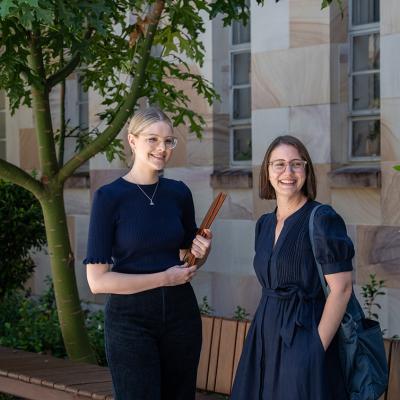
Could a PhD in law save the environment?
8-minute read

What makes a good PhD student?

How to get a PhD scholarship or funding

25,000+ students realised their study abroad dream with us. Take the first step today
Here’s your new year gift, one app for all your, study abroad needs, start your journey, track your progress, grow with the community and so much more.

Verification Code
An OTP has been sent to your registered mobile no. Please verify

Thanks for your comment !
Our team will review it before it's shown to our readers.

- Updated on
- Dec 29, 2022

Regarded as the highest degree in varied academic disciplines, a Doctorate of Philosophy ( PhD ) aims to provide students with a chance to delve deeper into a specific area of study. For a field like Law, a doctoral degree is suitable for those wanted to pursue their career as legal scholars and teachers. A PhD in Law incorporates intense coursework followed by detailed research in the chosen specialization. The program is devised for students who want to gain in-depth knowledge and advanced studies in the domain. If you also want to secure a doctorate degree in Law, you should definitely aim for attaining overseas education for the same. Through this blog, we will elucidate various aspects of PhD in Law, the eligibility criteria you need to fulfil, course structure and specialisations as well as top universities.
This Blog Includes:
Specialisations offered, course structure, top universities abroad offering phd in law, top colleges in india, entrance exams in india, phd in law: distance education, important books, eligibility for phd in law, application process , required documents .
Commonly offered as a 3-year degree, a PhD in Law implements a multidisciplinary approach and aims to impart students with the required theoretical background and research skills in the former part of the program while they are required to prepare their dissertation during the latter part. Often pursued as a full-time course, this degree prepares individuals for several leadership roles in Judiciary, Business, Academics as well as Government.
There are a plethora of concentrations available under PhD in Law from which applicants can choose from. These courses connect the vast discipline of law with its relevant sub-fields, hence students can opt for a unique course and specialize in the same. Selecting a particular specialization also helps to delve deeper into it by pursuing research. Take a look at the following list of PhD in Law specialisations:
- PhD in Interdisciplinary Law
- PhD in International Law
- PhD in Legal Studies
- PhD in Cyber Law
- PhD in Civil Law
- PhD in Jurisprudence
- PhD in Administrative Law Studies
- PhD in Environmental Law
- PhD in National Law Studies
- PhD in Dispute Resolution
Check Out: Law Subjects
The curriculum and syllabus of a PhD in Law can vary as per the specialisation as well the academic institution. But in order to provide you with a general overview, the following paragraphs describe the structure of this doctoral degree as followed for a 3-year program.
- In the first year of a PhD in Law, students get to focus on the coursework of their specialisations with their prospective Advisory Committees. Along with this, it also comprises a seminar regarding legal scholarships and methodologies. With all this, the degree also incorporates canonical workshops on legal scholarships in the first semester of the year. In the second semester, students are required to present a report on the same.
- During the second year, you will get to work with the faculty dissertation committee. Students have to present the dissertation in a manuscript of almost a book’s length or 3 articles that can be published thus constituting the portfolio. Afterwards, the committees will provide their views on one’s dissertation prospectus and give their seal of approval if they liked the topic. Apart from this intense research work of PhD in Law, students ought to compulsorily participate in teaching activities where they can work as teaching assistants, co-teaching with faculty etc.
- In the third year, students can either continue with their teaching as a professor of Law or they can go on with improvising their dissertation. In many cases, one can devote themselves to their research projects while pursuing teaching and at the conclusion of the third year, they will be required to submit their dissertation. However, the extension of the duration can also happen depending on a case-to-case basis.
Deciding the right university for a course can be a strenuous task and requires professional help. Leading law schools and universities around the globe possess the necessary capabilities to transform the personalities of enrolled students. These extra-edge attributes can help you have a kickstart in your career and convert your career aspirations into success. To grab a taste of global exposure and a plethora of opportunities in this field, here are some top-notch universities offering PhD in Law that you must consider:
Tabulated below are the top colleges in India offering a PhD in law. You can have a look here:
There are various entrance exams in India that you can apply for and attempt in order to be selected for a PhD in Law. They are mentioned below.
Did you know that you can pursue a PhD in law through distance education? A lot of established and good colleges as well as universities offer the course part-time or through correspondence. Tabulate below are some of the important colleges that offer PhD in Law through distance learning.
Tabulated below are the important and informative books you can refer to while pursuing a PhD in Law. You can check it out here:
PhD Law Admission Process
There are two ways of getting admission in PhD in Law. You can either get direct admission or merit.
Direct Admission
- For direct admission, you must get the admission form from the college or university. You can get it both offline and online.
- To get the application form you can go to the official website of the institute or college and fill the form there. You can upload it there and then.
- Once you have completed filling out the application form you must go to the college for counselling and also attend the round of personal interviews.
Merit-Based Admission
- The important exams conducted to give admission on the basis of merit include JMI Law Entrance Exam, CLAT, AILET – All India Law Entrance Test , NET – National Eligibility Test , and PET – PhD Entrance Test.
- Students can apply for these exams both offline and online. The forms for the respective exams can be downloaded on their official websites.
- Admission will be given on the basis of the subsequent marks obtained by students in these exams.
To get enrolled in any degree, candidates need to meet certain prerequisites specified for the course by the institution. Since there are a lot of specializations available for PhD in Law, the eligibility criteria tend to differ from one university to another. Below listed are some essential requirements that you need to fulfil in order to apply for the program:
- Bachelor’s degree in Law such as LLB or any other related discipline
- Master’s degree in Law, i.e. LLM although some universities may allow candidates having a postgraduate degree in similar disciplines
- Students are also required to qualify for the LSAT exam with a good score.
- Research Proposal (Around 1000 words): Describing the scope of the project along with undertaken dissertation.
- If you’re applying to foreign universities, you need to give English Language Proficiency Tests such as IELTS , TOEFL , etc.
- It is recommended for the candidates have a well-designed Curriculum Vitae.
This is another important aspect you need to keep in mind if you’re planning to become a lawyer. But the application process might get overwhelming. This is where the professional from Leverage Edu will help you. It’s important to complete the application process without any mistakes. Here are crucial things to consider:
- Call us and we will help you shortlist your favourite law universities . But you need to submit your application to multiple universities to broaden your chances of getting selected.
- Compile all essential documents. Don’t make mistakes while submitting the documents.
- Submit the application before the deadlines and start the application process for accommodation, students visa, and scholarships / student loans .
- Accept the offer letter
The documentation process is one of the most essential steps you should consider. But making some common mistakes will jeopardize your application. The documents you need to submit are::
- Educational certificates. As you’re going for a law degree, you need to provide your other mark sheets such as the 12th mark sheet, UG mark sheet, etc.
- Letter of recommendation
- Letter of intent
- Financial documents
- Statement of purpose
Career Prospects and Salary
After completing your PhD in law from a reputed university, you will be able to boost your chances of getting hired by top companies. Employers will take a look at your university name as it will have a huge impact on your employability. Therefore, make sure you complete your PhD degree from a reputed university to stand apart from the crowd. Here are the jobs you can get after completing your PhD in law:
- Law Professor
- Political Advisor
- Project Manager
- Compliance Manager
The salary of a lawyer who holds a PhD degree will vary from one designation to another as well as the country. Here’s a table:
Also Read: Law Entrance Exams India & Abroad
Taw law and corporate law are the most effective.
If you want to get into a high-ranked university, you’ll need more than just good grades; you’ll also need flawless application because the competition is fierce. You may enlist the assistance of Leverage Edu specialists to assist you with the application process so that you can realise your goals. Call us immediately at 1800 57 2000 for a free 30-minute counselling session.
Team Leverage Edu
Leave a Reply Cancel reply
Save my name, email, and website in this browser for the next time I comment.
Contact no. *
Thanks a lot ! This is very useful article for the newbies who are interested in pursuing PhD in Law.
thanks for your valuable feedback

Leaving already?
8 Universities with higher ROI than IITs and IIMs
Grab this one-time opportunity to download this ebook
Connect With Us
25,000+ students realised their study abroad dream with us. take the first step today..

Resend OTP in

Need help with?
Study abroad.
UK, Canada, US & More
IELTS, GRE, GMAT & More
Scholarship, Loans & Forex
Country Preference
New Zealand
Which English test are you planning to take?
Which academic test are you planning to take.
Not Sure yet
When are you planning to take the exam?
Already booked my exam slot
Within 2 Months
Want to learn about the test
Which Degree do you wish to pursue?
When do you want to start studying abroad.
September 2024
January 2025
What is your budget to study abroad?

How would you describe this article ?
Please rate this article
We would like to hear more.

- Schools & departments

Awards: PhD
Study modes: Full-time, Part-time
Funding opportunities
Programme website: Law
Discovery Day
Join us online on 18th April to learn more about postgraduate study at Edinburgh
View sessions and register
Research profile
The Edinburgh Law School is a vibrant, collegial and enriching community of legal, sociolegal and criminology researchers and offers an excellent setting for doctoral research.
Edinburgh Law School is ranked 3rd in the UK for law for the quality and breadth of our research by Research Professional, based on the 2021 Research Excellence Framework (REF2021).
Our doctoral researchers are key to the School’s research activities, and we work hard to ensure that they are fully engaged with staff and projects across all of our legal disciplines.
You will find opportunities in the following fields:
- company and commercial law
- comparative law
- constitutional and administrative law
- criminal law
- criminology and criminal justice
- environmental law
- European law, policy and institutions
- European private law
- evidence and procedure
- gender and sexuality
- human rights law
- information technology law
- intellectual property law
- international law
- legal theory
- medical law and ethics
- obligations
- contract delict
- unjustified enrichment
- property, trusts and successions
- Roman law and legal history
- socio-legal studies
Training and support
Doctoral researchers enjoy full access to the University’s research skills training which the Law School complements with a tailored research and wider skills programme.
The training programme in Year One (six seminars) includes workshops on research design, writing and research ethics.
The focus of the training programme in Year Two and Three is on supporting the dissemination of work with opportunities to present work.
Opportunities are also available for research exchanges through the League of European Research (LERU) network, as well as an annual research training exchange programme with KU Leuven.
- Find out more about the training and support available
Doctoral researchers are able to draw upon a fantastic range of resources and facilities to support their research.
The Law School has one of the most significant academic law libraries in the UK which offers outstanding digital resources alongside a world-leading print collection (almost 60,000 items including a unique collection for Scots law research).
You will also have access to the University’s Main Library which has one of the largest and most important collections in Britain, as well as the legal collection of the National Library of Scotland.
Career opportunities
Upon completion of the PhD, the majority of our students progress to postdoctoral research or lecturing and teaching roles.
Recent graduates have also found employment in roles as diverse as prison governor, solicitor and policy adviser for organisations including:
- the International Criminal Court
- Anderson Strathern
- HM Prison Service
Our PhD programme
Edinburgh Law School can offer expert supervision across an exceptional range of subject areas for PhD study.
A PhD at Edinburgh Law School involves undertaking independent research, culminating in the submission of a thesis of up to 100,000 words, which should be an original piece of work that makes a significant contribution to knowledge in the field of study and contains material worthy of publication.
As a doctoral student, you will join a diverse community of around 100 postgraduate researchers and will become an integral part of the intellectual life of the School.
- Find our more about studying for a PhD at Edinburgh Law School
Studying for a PhD video
Entry requirements.
These entry requirements are for the 2024/25 academic year and requirements for future academic years may differ. Entry requirements for the 2025/26 academic year will be published on 1 Oct 2024.
- PhD Law: a UK 2:1 honours degree in law, arts or social sciences, and a UK Masters degree with at least 60% in the taught section and 65% or more in the dissertation, or their international equivalents.
The majority of our applicants have studied law, but we are a comprehensive Law School covering a range of approaches to legal topics including social science, historical and philosophical enquiry; applications from non-law students with relevant studies and experience will be considered and if you require further guidance please contact us.
Entry to this programme is competitive. Meeting minimum requirements for consideration does not guarantee an offer of study
International qualifications
Check whether your international qualifications meet our general entry requirements:
- Entry requirements by country
- English language requirements
Regardless of your nationality or country of residence, you must demonstrate a level of English language competency at a level that will enable you to succeed in your studies.
English language tests
We accept the following English language qualifications at the grades specified:
- IELTS Academic: total 7.0 with at least 7.0 in writing and 6.5 in all other components. We do not accept IELTS One Skill Retake to meet our English language requirements.
- TOEFL-iBT (including Home Edition): total 100 with at least 25 in writing and 23 in all other components.
- C1 Advanced ( CAE ) / C2 Proficiency ( CPE ): total 185 with at least 185 in writing and 176 in all other components.
- Trinity ISE : ISE III with passes in all four components.
- PTE Academic: total 70 with at least 70 in writing and 62 in all other components.
Your English language qualification must be no more than three and a half years old from the start date of the programme you are applying to study, unless you are using IELTS , TOEFL, Trinity ISE or PTE , in which case it must be no more than two years old.
Degrees taught and assessed in English
We also accept an undergraduate or postgraduate degree that has been taught and assessed in English in a majority English speaking country, as defined by UK Visas and Immigration:
- UKVI list of majority English speaking countries
We also accept a degree that has been taught and assessed in English from a university on our list of approved universities in non-majority English speaking countries (non-MESC).
- Approved universities in non-MESC
If you are not a national of a majority English speaking country, then your degree must be no more than five years old* at the beginning of your programme of study. (*Revised 05 March 2024 to extend degree validity to five years.)
Find out more about our language requirements:
Fees and costs
Scholarships and funding, featured funding.
- School of Law funding opportunities
- Research scholarships for international students
- Principal's Career Development PhD Scholarships
UK government postgraduate loans
If you live in the UK, you may be able to apply for a postgraduate loan from one of the UK’s governments.
The type and amount of financial support you are eligible for will depend on:
- your programme
- the duration of your studies
- your tuition fee status
Programmes studied on a part-time intermittent basis are not eligible.
- UK government and other external funding
Other funding opportunities
Search for scholarships and funding opportunities:
- Search for funding
Further information
- Postgraduate Research Office
- Phone: +44 (0)131 650 2022
- Contact: [email protected]
- School of Law (Postgraduate Research Office)
- Old College
- South Bridge
- Central Campus
- Programme: Law
- School: Law
- College: Arts, Humanities & Social Sciences
Select your programme and preferred start date to begin your application.
PhD Law - 3 Years (Full-time)
Phd law - 6 years (part-time), application deadlines.
We encourage you to apply at least one month prior to entry so that we have enough time to process your application. If you are also applying for funding or will require a visa then we strongly recommend you apply as early as possible.
- How to apply
You must submit two references with your application.
Find out more about the general application process for postgraduate programmes:

Law and Economics
Jd/ma, jd/phd.
A degree that blends expertise in law and economics enables lawyers to have an impact on a wide range of issues related to law, business, and finance. Judges and practitioners increasingly rely on economic reasoning to resolve legal disputes. In some areas of legal practice—especially antitrust law, tax law, bankruptcy, corporate and securities law, and other fields of economic law—economic reasoning is often central to the focus of legal arguments, and it continues to grow in importance in many other seemingly non-economic fields, such as environmental law, intellectual property law, health law, and more.
With a superb economics department , top-ranked economists in the Graduate School of Business , and a law school oriented toward interdisciplinary education and research, Stanford offers an ideal learning environment for studying law and economics. Faculty who lead in their fields are a key Stanford asset; the university is proud to claim eight Nobel laureates in economics.
A Stanford JD/MA in law and economics can support a career in virtually any area of legal practice, including corporate law, tort law, contract law, civil procedure, and international law. Students who pursue a Stanford JD/PhD in this area receive strong background for an academic career or work in the private sector or government.
Course Requirements
For the JD/MA program, as many as 45 quarter units of approved courses may be counted toward both degrees. For the JD/PhD program, as many as 54 quarter units of approved courses may be counted toward both degrees. In either case, no more than 31 quarter units of courses that originate outside the law school may count toward the law degree.
The maximum number of law school credits that may be counted toward the MA or PhD in economics is the greater of: (i) 5 quarter units in the case of the MA and 10 quarter units in the case of the PhD; or (ii) the maximum number of units from courses outside the department that MA or PhD candidates in economics are permitted to count toward the applicable degree under general departmental guidelines or in the case of a particular student’s individual program.
Note to applicants: The Knight-Hennessy Scholars program awards full funding to Stanford graduate students from all disciplines, with additional opportunities for leadership training and collaboration across fields. Joint Degree applicants are encouraged to apply to the Knight – Hennessy Scholars Program. Please be aware that the Knight-Hennessy Scholars applications are due in early Autumn one year prior to enrollment. View dates and deadlines: knight-hennessy.stanford.edu/dates-and-deadlines .
At this point in my career, I'm doing exactly what I want to do, and I owe it to my Stanford joint degree. I had enormous flexibility to tailor the program to my academic and professional goals, making it easy to move between two academic homes and do the research I wanted to do.
Gillian Hadfield, JD/PhD in Law and Economics, '88

Joseph Bankman
- Ralph M. Parsons Professor of Law and Business

Richard Craswell
- Professor of Law, Emeritus

Robert M. Daines
- Pritzker Professor of Law and Business, Emeritus

Ronald J. Gilson
- Charles J. Meyers Professor of Law and Business, Emeritus

Joseph A. Grundfest
- W. A. Franke Professor of Law and Business, Emeritus
- Senior Faculty, Rock Center for Corporate Governance

Daniel P. Kessler
- Professor of Law
- Keith and Jan Hurlbut Senior Fellow, Hoover Institution
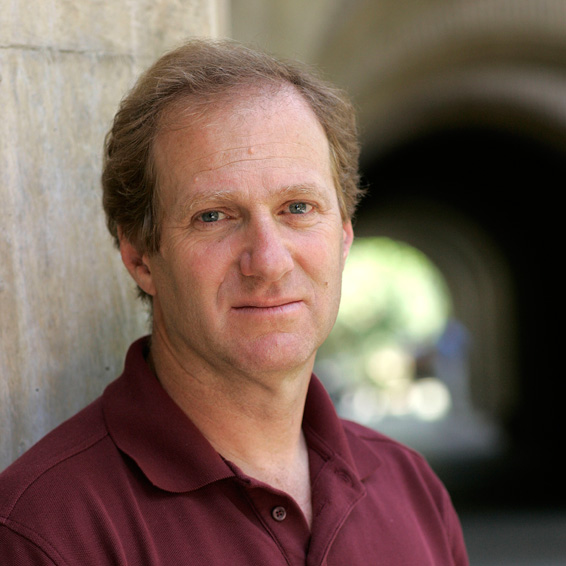
Michael Klausner
- Nancy and Charles Munger Professor of Business

Mark A. Lemley
- William H. Neukom Professor of Law
- Director, Program in Law, Science & Technology
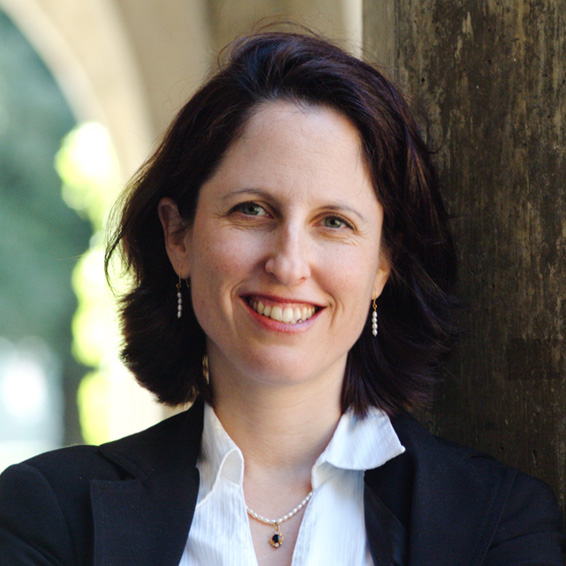
Alison D. Morantz
- James and Nancy Kelso Professor of Law
- Director of SIDDLAPP
- Senior Fellow, Stanford Institute of Economic Policy Research

A. Mitchell Polinsky
- Josephine Scott Crocker Professor of Law and Economics

Jeff Strnad
- Charles A. Beardsley Professor of Law

Alan O. Sykes
- Professor of Law and Warren Christopher Professor in the Practice of International Law and Diplomacy
- Senior Fellow, SIEPR
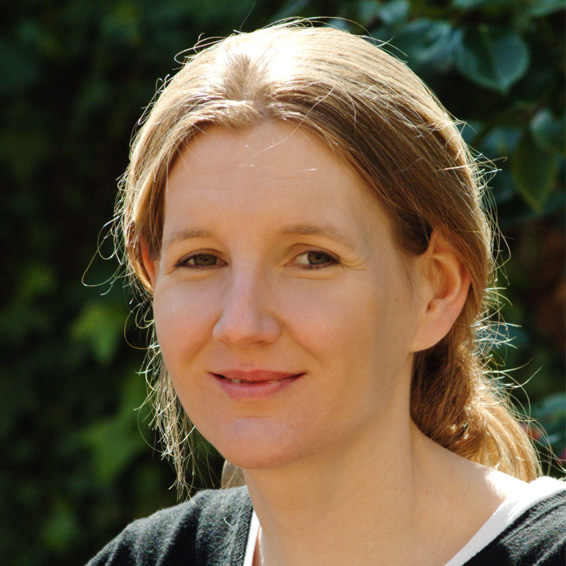
Barbara van Schewick
- M. Elizabeth Magill Professor of Law
- Director, Center for Internet and Society
- Professor, by courtesy, Electrical Engineering
Browser does not support script.
- Working paper series

PhD Programme in Law
The opportunity to undertake advanced legal research at one of the world's best law schools.
The London School of Economics is a world centre for advanced research and teaching with an outstanding reputation, with a campus situated in the heart of London, one of the most cosmopolitan cities in the world. Only a short distance from Europe's financial, legal and cultural centres, LSE stands at the crossroads of international debate, a location that is fundamental to our identity as an outward looking institution with an active involvement in UK and world affairs. Each year the School attracts many influential outside speakers. Regular events and seminars involving politicians, regulators, practitioners and academics take place to complement your studies.
LSE Law School is one of the UK's pre-eminent research institutions for law. Our academics are the authors of influential and often path-breaking scholarship, and many have globally leading reputations. LSE Law is also one of UK's largest law schools, with over 70 academic members of staff. It is a uniquely cosmopolitan academic community, with staff and students coming from all over the world. Our academics draw on a wide range of literatures and traditions, and pursue analyses that seek to situate the law within the political, social and economic context within which it is formed and operates.
PhD Programme
The PhD programme at the London School of Economics and Political Science offers the opportunity to undertake advanced legal research at one of the world's best law schools. Students in our PhD programme receive excellent training and work under the supervision of leading scholars with strong international, comparative and interdisciplinary commitments. Our doctoral students become members of a lively academic community which is at the cutting-edge of legal scholarship and which plays a major role in the education of lawyers and law teachers from around the world.
We hope that the questions you have about our PhD programme will be answered in these web pages. If you have additional questions, please do not hesitate to contact us , or see our Frequently Asked Questions ...

PhD Funding
PhD Current research
PhD placements What do our PhD students do after leaving LSE?
FAQs Your questions about the PhD programme
PhD completions Browse our completed PhDs
Careers Our careers information and resources
Visiting research students How to apply as a visiting student
PhD Academy A dedicated space for PhD students
LSE Life Academic, personal, professional development

- Doctor of Philosophy in Law (PhD)
- Graduate School
- Prospective Students
- Graduate Degree Programs
Canadian Immigration Updates
Applicants to Master’s and Doctoral degrees are not affected by the recently announced cap on study permits. Review more details
Go to programs search
The PhD in Law is designed to provide advanced training for outstanding graduate students who have already obtained a Master of Laws (LLM) degree or its equivalent. The PhD is a research-intensive degree that prepares graduates for opportunities in law teaching, legal research, policy development, public and governmental service, and the practice of law.
The degree requirements include course work, comprehensive exams, a dissertation proposal and defence, a dissertation, and an oral dissertation exam. Working closely with a supervising faculty member, a student in the PhD program is expected to produce a book-length piece of original legal scholarship and of publishable quality.
The PhD provides an opportunity for focused study in a chosen field of law. It does not, of itself, qualify a holder for entry to the legal profession in British Columbia or any other certification for legal practice.
For specific program requirements, please refer to the departmental program website
The Peter A. Allard School of Law at the University of British Columbia is a leader in Indigenous legal education. [My research supervisors] have advocated for space for Indigenous Laws before it was common parlance in Canada.

Terri-Lynn Williams-Davidson, KC
Quick Facts
Program Enquiries
Admission information & requirements, 1) check eligibility, minimum academic requirements.
The Faculty of Graduate and Postdoctoral Studies establishes the minimum admission requirements common to all applicants, usually a minimum overall average in the B+ range (76% at UBC). The graduate program that you are applying to may have additional requirements. Please review the specific requirements for applicants with credentials from institutions in:
- Canada or the United States
- International countries other than the United States
Each program may set higher academic minimum requirements. Please review the program website carefully to understand the program requirements. Meeting the minimum requirements does not guarantee admission as it is a competitive process.
English Language Test
Applicants from a university outside Canada in which English is not the primary language of instruction must provide results of an English language proficiency examination as part of their application. Tests must have been taken within the last 24 months at the time of submission of your application.
Minimum requirements for the two most common English language proficiency tests to apply to this program are listed below:
TOEFL: Test of English as a Foreign Language - internet-based
Overall score requirement : 100
IELTS: International English Language Testing System
Overall score requirement : 7.0
Other Test Scores
Some programs require additional test scores such as the Graduate Record Examination (GRE) or the Graduate Management Test (GMAT). The requirements for this program are:
The GRE is not required.
Prior degree, course and other requirements
Prior degree requirements.
Completion of either an LLB or JD and a Masters degree.
Document Requirements
Additionally to the required documents please submit: C.V. or resume Dissertation Proposal: PhD degrees in the Allard School of Law at UBC are dissertation-based degrees involving original research. Dissertation (PhD) proposals form an important part of the admissions process and help to guide the assignment of supervisors and supervisory committees. A proposal should outline a research project that could reasonably lead to a dissertation that makes an original scholarly contribution in the chosen field of legal study. The PhD dissertation proposal is approximately 10 pages (2,500 words), excluding bibliography. Clarity of expression is important. Please upload your thesis proposal under "Writing Sample". List of possible thesis supervisors: All applicants must submit a list indicating your first and second choice for a thesis supervisor, this list should be uploaded to your application form. There is no need to secure a thesis supervisor nor is it is necessary to contact potential thesis supervisors prior to submission of an application as many faculty members prefer that applications are referred by the Graduate Committee for their review.
2) Meet Deadlines
3) prepare application, transcripts.
All applicants have to submit transcripts from all past post-secondary study. Document submission requirements depend on whether your institution of study is within Canada or outside of Canada.
Letters of Reference
A minimum of three references are required for application to graduate programs at UBC. References should be requested from individuals who are prepared to provide a report on your academic ability and qualifications.
Statement of Interest
Many programs require a statement of interest , sometimes called a "statement of intent", "description of research interests" or something similar.
Supervision
Students in research-based programs usually require a faculty member to function as their thesis supervisor. Please follow the instructions provided by each program whether applicants should contact faculty members.
Instructions regarding thesis supervisor contact for Doctor of Philosophy in Law (PhD)
Citizenship verification.
Permanent Residents of Canada must provide a clear photocopy of both sides of the Permanent Resident card.
4) Apply Online
All applicants must complete an online application form and pay the application fee to be considered for admission to UBC.
Research Information
Research facilities.
Allard Hall, the home of the Peter A. Allard School of Law, was opened in 2011. The latest technology connects the Faculty with campuses, courthouses and offices around the world, and a new, state-of-the-art UBC Law Library serves as a vital academic hub for students and the legal community. Natural light, contemporary classroom designs, expanded student service spaces, a student forum space at the centre of the building, and new research spaces are all part of the new facility. The Law Library has a research collection of approximately 225,000 volumes.
Tuition & Financial Support
Financial support.
Applicants to UBC have access to a variety of funding options, including merit-based (i.e. based on your academic performance) and need-based (i.e. based on your financial situation) opportunities.
Program Funding Packages
From September 2024 all full-time students in UBC-Vancouver PhD programs will be provided with a funding package of at least $24,000 for each of the first four years of their PhD. The funding package may consist of any combination of internal or external awards, teaching-related work, research assistantships, and graduate academic assistantships. Please note that many graduate programs provide funding packages that are substantially greater than $24,000 per year. Please check with your prospective graduate program for specific details of the funding provided to its PhD students.
Average Funding
- 1 student received Teaching Assistantships valued at $1,054.
- 2 students received Research Assistantships. Average RA funding based on 2 students was $6,313.
- 10 students received Academic Assistantships. Average AA funding based on 10 students was $4,505.
- 20 students received internal awards. Average internal award funding based on 20 students was $20,705.
- 8 students received external awards. Average external award funding based on 8 students was $20,750.
Scholarships & awards (merit-based funding)
All applicants are encouraged to review the awards listing to identify potential opportunities to fund their graduate education. The database lists merit-based scholarships and awards and allows for filtering by various criteria, such as domestic vs. international or degree level.
Graduate Research Assistantships (GRA)
Many professors are able to provide Research Assistantships (GRA) from their research grants to support full-time graduate students studying under their supervision. The duties constitute part of the student's graduate degree requirements. A Graduate Research Assistantship is considered a form of fellowship for a period of graduate study and is therefore not covered by a collective agreement. Stipends vary widely, and are dependent on the field of study and the type of research grant from which the assistantship is being funded.
Graduate Teaching Assistantships (GTA)
Graduate programs may have Teaching Assistantships available for registered full-time graduate students. Full teaching assistantships involve 12 hours work per week in preparation, lecturing, or laboratory instruction although many graduate programs offer partial TA appointments at less than 12 hours per week. Teaching assistantship rates are set by collective bargaining between the University and the Teaching Assistants' Union .
Graduate Academic Assistantships (GAA)
Academic Assistantships are employment opportunities to perform work that is relevant to the university or to an individual faculty member, but not to support the student’s graduate research and thesis. Wages are considered regular earnings and when paid monthly, include vacation pay.
Financial aid (need-based funding)
Canadian and US applicants may qualify for governmental loans to finance their studies. Please review eligibility and types of loans .
All students may be able to access private sector or bank loans.
Foreign government scholarships
Many foreign governments provide support to their citizens in pursuing education abroad. International applicants should check the various governmental resources in their home country, such as the Department of Education, for available scholarships.
Working while studying
The possibility to pursue work to supplement income may depend on the demands the program has on students. It should be carefully weighed if work leads to prolonged program durations or whether work placements can be meaningfully embedded into a program.
International students enrolled as full-time students with a valid study permit can work on campus for unlimited hours and work off-campus for no more than 20 hours a week.
A good starting point to explore student jobs is the UBC Work Learn program or a Co-Op placement .
Tax credits and RRSP withdrawals
Students with taxable income in Canada may be able to claim federal or provincial tax credits.
Canadian residents with RRSP accounts may be able to use the Lifelong Learning Plan (LLP) which allows students to withdraw amounts from their registered retirement savings plan (RRSPs) to finance full-time training or education for themselves or their partner.
Please review Filing taxes in Canada on the student services website for more information.
Cost Estimator
Applicants have access to the cost estimator to develop a financial plan that takes into account various income sources and expenses.
Career Outcomes
24 students graduated between 2005 and 2013: 1 is in a non-salaried situation; for 1 we have no data (based on research conducted between Feb-May 2016). For the remaining 22 graduates:
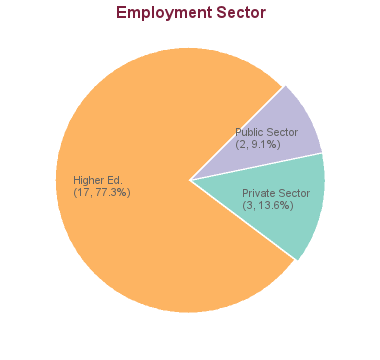
Sample Employers in Higher Education
Sample employers outside higher education, sample job titles outside higher education, phd career outcome survey, alumni on success.

Craig Bateman
Job Title Copy editor, legal researcher, and writing consultant
Employer Self employed
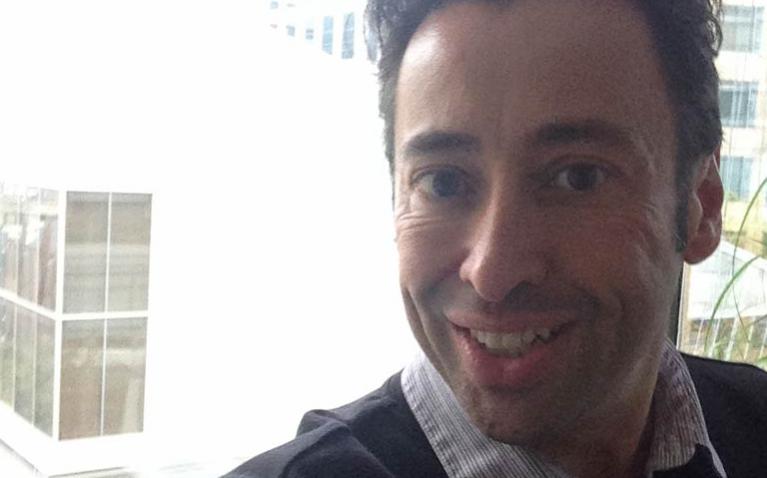
Robert Russo
Job Title Lecturer
Employer Peter A. Allard School of Law, University of British Columbia
Enrolment, Duration & Other Stats
These statistics show data for the Doctor of Philosophy in Law (PhD). Data are separated for each degree program combination. You may view data for other degree options in the respective program profile.
ENROLMENT DATA
Completion rates & times.
- Research Supervisors
This list shows faculty members with full supervisory privileges who are affiliated with this program. It is not a comprehensive list of all potential supervisors as faculty from other programs or faculty members without full supervisory privileges can request approvals to supervise graduate students in this program.
- Affolder, Natasha (International Environmental Law, Biodiversity Law, Law and Sustainability)
- Ahmad, Hassan (transnational tort law; interaction of domestic jurisdiction and liability principles with international law; business and human rights law; Law and political economy)
- Aloni, Erez (Law and legal practice; Law; Contracts; family law; law and sexuality)
- Arbel, Efrat (Law and legal practice; Law; Constitutional law; Gender and Law; Legal and Critical Theory; Prison Law and Policy; Refugee Law; Tort Law)
- Bakan, Joel Conrad (Constitutional Law, Legal Theory, Socio-Legal Studies)
- Benedet, Janine (Law and legal practice; Penal Law; Labor Standards and Laws; Human Rights and Liberties, Collective Rights; prostitution and pornography; sexual abuse of girls; sexual harassment in employment and education; sexual violence against women)
- Beswick, Samuel Peter (Private law; Common law; Comparative law; Torts, private obligations and product liability law; Legal theory, jurisprudence and legal interpretation; Law; Law and time; Limitations; Remedies; Tort Law; Restitution and unjust enrichment; Public authority liability)
- Bhandar, Brenna (Law and legal practice; property law)
- Biukovic, Ljiljana (Adaptation of international legal norms by national governments, the impact of regionalism on multilateral trade negotiations and the development of European Union Law,European union Law, International Trade Law, International Dispute Resolution, E-commerce, Comparative Law )
- Cheng, Jie (Comparative Constitutional Law; Chinese Law and Governance; Hong Kong and Macau Basic Laws; Land Property Law; Information Law)
- Christie, Gordon (Legal Theory, and trans-cultural tort law, Aboriginal law, Indigenous legal orders, Indigenous legal theory, Legal Theory and trans-cultural tort law)
- Clifford, Robert (Aboriginal and Indigenous law)
- Cui, Wei (Law and legal practice; Taxation; Law; Social Organization and Political Systems; Chinese administrative law; Chinese legislative system; law and development; Law and political economy; tax and development; tax policy)
- Cunliffe, Emma (Women and the law, evidence, experts, courts and media, open justice, pathology and law, criminal law, SIDS, child homicide )
- Dauvergne, Catherine (Immigration, Immigration Law, Refugee Law, Legal Theory, Globalization)
- Duff, David (Tax Law Tax Policy Environmental Taxation Charities, Tax law and policy, environmental taxation, comparative and international taxation, and distributive justice)
- Etxabe, Julen (Law and society; Literature and critical theory; History and philosophy of law and justice; Law and humanities; Legal Theory and Jurisprudence; Human Rights; Political Theory; Law and literature; Cultural Studies)
- Flynn, Alexandra (Law and society; Municipal Law; Local Governance; property law; Administrative Law; Experiential legal education; Socio-Legal Studies; Law & Cities)
- Ford, Cristie (Law and legal practice; Law; Regulation; Social, Economical and Political Impacts of Innovations; Laws, Standards and Regulation Impacts; Administrative Law; Ideological, Political, Economical and Social Environments of Social Transformations; Financial innovation and fintech; financial regulation; Legal innovation and law tech; regulation & governance theory; securities regulation; the legal profession; Innovation and the law)
- Goldbach, Toby Susan (Law and legal practice; Political Culture, Society and Ideology; Procedural Law; Jurisprudence; Comparative Law; Dispute Resolution; Judicial Politics; law and development)
- Goold, Benjamin (Law and legal practice; Law; Border Studies; Criminal Justice; Human Rights; migration; Privacy; security)
- Gordon, Sara (Law and legal practice; Intersection of psychology and mental health with the criminal justice system; Criminal law and criminal justice; Health law and policy; Legal methodology and interdisciplinary approaches)
- Grant, Isabel (Criminal Law, Constitutional Law, Psychiatry and Law)
- Harris, Douglas (Property law (except intellectual property law); Canadian history; property law; condominium law; legal history)
- Hastie, Bethany (Labour & Employment Law, Human Rights, Socio-Legal Studies, Access to Justice)
Doctoral Citations
Sample thesis submissions.
- Sustainable development : Africa's hidden and not-so-hidden contribution to its law, politics, and history
- Africanization of international investment law : reconciling sustainable development, climate action, and foreign investment in the global south
- Rethinking the Antarctic governance and legal framework through the creation of an international legal framework for mining operations in Antarctica
- Overlapping criminal offences and gendered violence : what is overlap and when is it part of the problem of overcriminalisation?
- Climate discourse polluted : a cumulative effects analysis of the fossil fuel industry’s tactics to influence public discourse
- The financialization of housing in Canada and federally-backed mortgage securitization : public risks, private benefits
- Bishops on the bench : why Constantine legislated Christian bishops into the role of judges
- Canada's criminal justice response to technology-facilitated intimate partner violence
- Towards a theory of deference in Canadian proportionality jurisprudence
Related Programs
Same specialization.
- Juris Doctor (JD)
- LLM - Master of Laws (Common Law) (LLMCL)
- LLM - Master of Laws (LLM)
- LLM in Taxation (LLMT)
Further Information
Specialization, ubc calendar, program website, faculty overview, academic unit, program identifier, classification, social media channels, supervisor search.
Departments/Programs may update graduate degree program details through the Faculty & Staff portal. To update contact details for application inquiries, please use this form .

Oludolapo Makinde
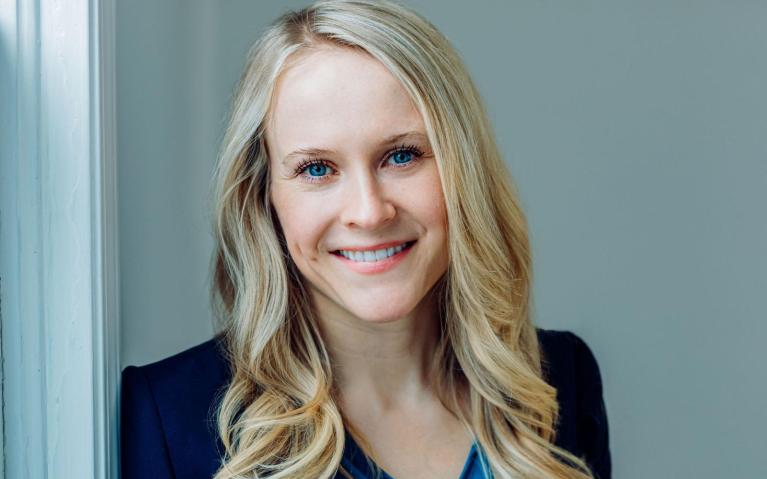
Haley Hrymak
Many of the academics I admire and look up to are at UBC. UBC is the ideal place for my work given my focus on BC, my supervisors’ skillsets, and my connection to the legal community and anti-violence sector across BC. I am also very thankful for the funding UBC has offered me to complete my...

Melanie McPhail
Growing up in the Vancouver area, I was thrilled at the opportunity of continuing my graduate studies close to home after spending over a decade in Ontario. Additionally, studying at UBC provides me with the opportunity to work with Dr. Cristie Ford, a leading scholar in regulatory governance.

Curious about UBC for grad school?
Our community of scholars is one of the world’s finest, committed to discovering and sharing knowledge, and to tackling the challenges that face our world.
- Why Grad School at UBC?
- Application & Admission
- Info Sessions
- Research Projects
- Indigenous Students
- International Students
- Tuition, Fees & Cost of Living
- Newly Admitted
- Student Status & Classification
- Student Responsibilities
- Supervision & Advising
- Managing your Program
- Health, Wellbeing and Safety
- Professional Development
- Dissertation & Thesis Preparation
- Final Doctoral Exam
- Final Dissertation & Thesis Submission
- Life in Vancouver
- Vancouver Campus
- Graduate Student Spaces
- Graduate Life Centre
- Life as a Grad Student
- Graduate Student Ambassadors
- Meet our Students
- Award Opportunities
- Award Guidelines
- Minimum Funding Policy for PhD Students
- Killam Awards & Fellowships
- Policies & Procedures
- Information for Supervisors
- Dean's Message
- Leadership Team
- Strategic Plan & Priorities
- Vision & Mission
- Equity, Diversity & Inclusion
- Initiatives, Plans & Reports
- Graduate Education Analysis & Research
- Media Enquiries
- Newsletters
- Giving to Graduate Studies
Strategic Priorities
- Strategic Plan 2019-2024
- Improving Student Funding
- Promoting Excellence in Graduate Programs
- Enhancing Graduate Supervision
- Advancing Indigenous Inclusion
- Supporting Student Development and Success
- Reimagining Graduate Education
- Enriching the Student Experience
Initiatives
- Public Scholars Initiative
- 3 Minute Thesis (3MT)
- PhD Career Outcomes
- Great Supervisor Week
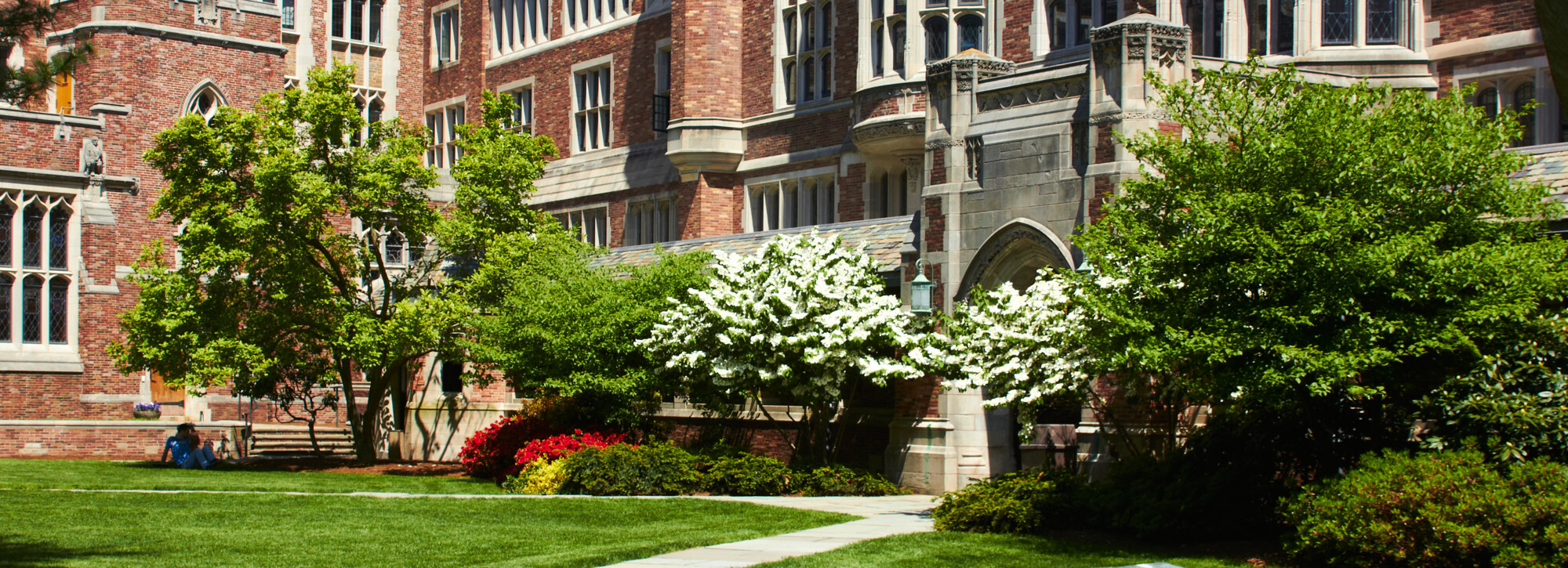
Ph.D. Admission
Applications will be accepted in the fall of 2023 for study to commence in the fall of 2024. The application deadline is December 15, 2023, but the Admissions Committee will begin to review each application when it is complete. Applications must be submitted via Yale University's Graduate School of Arts and Sciences application website.
- Personal Statement (500-1000 words) The personal statement should describe the applicant’s motivations for pursuing the Ph.D. in Law degree and should describe the applicant’s qualifications to undertake the proposed course of study, especially qualifications that are not evident from the applicant’s CV.
- Research Proposal (1000 words) The research proposal should describe the project that the applicant plans to undertake as a dissertation. The proposal should describe the project’s scope, its scholarly significance and research methodology, including any source materials on which the project will rely or any empirical research that the applicant intends to undertake. The research proposal need not be as fully developed as a dissertation prospectus, and projects are expected to evolve over the course of students’ time in the program. Nonetheless, applicants are expected to have a clear sense of the general research project that they will undertake.
- Writing Sample The writing sample should be a piece of legal scholarship authored solely by the applicant. Ideally, the writing sample should be on a subject related to the applicant’s proposed research project. Submitted writing samples should be no more than the equivalent of 30-published pages in length (15,000 words)—an excerpt from a longer work may be used.
- Letters of Recommendation Applicants will be asked to identify three individuals willing to write letters of recommendation on their behalf. Recommenders will then receive an email with instructions about how to submit letters directly to the Graduate School. Applicants should choose recommenders who are best situated to evaluate an applicant’s past academic work and potential to produce first-rate legal scholarship. The Ph.D. Admissions Committee strongly recommends that at least two recommenders hold academic appointments at a law school.
- Test Scores The applicant will be asked to self-report his or her LSAT score; scores from any administration of the exam will be accepted. Prior to matriculation, those admitted to the Ph.D. in Law program will be required to provide formal confirmation of the self-reported score.
- Transcripts The applicant will need to upload records of academic performance to the online application prior to submission. No transcripts should be mailed. This upload may be in the form of a scanned copy of the applicant's transcript or academic record. If the transcript is in a language other than English, the applicant will also need to provide an English translation of the transcript. The translation must be certified to be an accurate translation of the original and be notarized or otherwise authenticated. The translation and the original transcript can then be uploaded to the application.
- Curriculum Vitae The applicant should submit a curriculum vitae listing all academic honors and awards, publications and presentations, and other professional accomplishments.
- Application Fee Each applicant must pay the application fee in the amount and manner required by the Graduate School.
Previous applicants who were not admitted to the Ph.D. in Law program and who wish to reapply must submit a completely new application and pay the application fee. Applicants who have been denied admission three times may not submit further applications.
Section Menu
- Degree Completion Plans
- Course Guides
- Supplemental Instruction
- IT Helpdesk
- Academic Departments
- Doctoral Degrees
- Communications
- Criminal Justice
- Public Policy
- Strategic Leadership
- Worship Studies
- More Programs >
- Masters Degrees
- Applied Psychology
- Business Administration
- Clinical Mental Health Counseling
- Executive Leadership
- Healthcare Administration
- Political Science
- Public Administration
- Social Work
- Bachelor's Degrees
- Graphic Design
- Information Technology
- Paralegal Studies
- Sports Management
- Associate Degrees
- Christian Counseling
- Creative Writing
- Early Childhood Education
- Information Systems
- Interdisciplinary Studies
- Medical Office Assistant
- STEM Mathematics
- Undergraduate
- Christian Ministry
- Data Networking
- Project Management
- Biblical Studies
- Educational Tech. & Online Instruction
- General Business
- Health Promotion
- Theological Studies
- Curriculum and Instruction
- Instructional Design
- Higher Ed. Administration
- Special Education
- New Programs
- Biblical Counseling (BS)
- Chaplaincy (MA)
- Christian Leadership – Faith-Based Consulting (PhD)
- Educational Research (PhD)
- Fire Administration – Emergency Medical Services (BS)
- Geographic Information Systems – Commercial Logistics (MS)
- Healthcare Law and Compliance (MBA)
- Instructional Design and Technology (EdS)
- Interdisciplinary Research (MA)
- International Relations – Human Rights (MS)
- Philosophy, Politics, and Economics (BS)
- Special Education (EdD)
- Who Are We?
- Our Three A's
- Virtual Tour of Liberty's Campus
- What is a Nonprofit University?
- Why Choose Liberty?
Accreditation
- Top 10 Reasons to Choose Liberty University
- Video Testimonials
- Annual Security Report
- Annual Security Report 2023
- Admission Information
- Getting Started With Liberty
- Admission Process
- Admission FAQs
- Academic Calendar
- Admission Resources
- Common Forms and Documents
- Technical Requirements
- Official Transcript Request Form
- Textbooks and Software
- Transferring to Liberty
- Transfer Students
- Experience Plus – Credit for Life Experience
- Transfer FAQs
- University Transcript Request Links
- Tuition Assistance
- First Responder Discount
- Military Tuition Discount
- Small Business Discount
- Corporate Tuition Assistance
- Corporate Tuition Affiliates
- Financial Basics
- Tuition & Fees
- Payment Plans
- Military Benefits
- Financial Check-In
- Financial Aid
- Financial Aid Process
- Financial Aid FAQs
- Grants & Loans
- Scholarship Opportunities
- Military Homepage
- Military Benefits Guide
- Discount on Tuition
- Doctoral Military Rate
- Veterans Benefits
- Academics and Programs
- Military Programs and Partnerships
- Military Benefits and Scholarships
- Community and Resources
- Top Used Links
- Upcoming Events
- Academic Advising
- Jerry Falwell Library
- Policies and Deadlines
- Liberty University Academic Calendar Online
- Academic Policies
- Information Technology (IT)
- Online Writing Center
- Honor Societies
- Student Advocate Office
- Flames Pass (Student ID)
- Online Student Life
- Office of Disability Accommodation Support
- Commonly Used Forms
- learn.liberty.edu
Online Ph.D. in Education – Educational Law
Transfer credits, next start date, liberty’s online ph.d. in education – educational law can equip you to implement student-focused education policies.
A legal perspective on education can make a big difference when it comes to setting policies and influencing the future of educational institutions.
With Liberty University’s 100% online Ph.D. in Education – Educational Law degree program, you can expand your knowledge, skills, and training in the legal aspects of education. The Ph.D. in Education applies relevant concepts in a way that can give you the flexibility to help learners in any setting, and the knowledge you gain in educational law can prepare you to lead others in corporations, businesses, and successful school administrations.
So whether your goal is to teach, design for curriculum and instruction, or serve in school administration, Liberty is committed to preparing future educators and leaders who impact the field of education for Christ. Liberty University’s Ph.D. in Education is a 100% online program designed to provide advanced training for educators across various fields. The specialization in educational law helps education professionals make a positive impact on educational organizations and policies.
Since understanding education law and policy can help you develop better teaching and learning environments, Liberty’s educational law degree focuses on developing your knowledge of important legal policies and theories. Through Liberty’s Ph.D. in Education, you can gain the confidence you need to lead educational organizations and help improve our education system.
The education research you develop during your academic and dissertation studies can benefit your fellow educators and build new bodies of knowledge. Through academic research excellence and a thorough understanding of education law, you can be equipped to help schools, teachers, and governments make the education system work better for students.
What can I do with a Ph.D. in Education?
Advanced training in education, educational law, and research, can help you gain the valuable communication and problem-solving skills needed to lead students and organizations to success. Our online Ph.D. in Education – Educational Law can provide you with the tools and skills you need to lead an educational administration at the county, state, or national level.
Liberty’s Ph.D. in Education can prepare you for a career as a proficient researcher, effective leader, or skilled educator. Our programs are taught from a biblical worldview and encourage educators to model high standards as they assume leadership roles within various education-related organizations. Researchers and leaders in the field of education can shape the future direction of policies, goals, and objectives within K-12, business, or state or federal government educational settings.
Why Choose Liberty’s Ph.D. in Education – Educational Law Online Program?
At Liberty University, we believe your impact on the next generation matters. All of your classes will be taught from a biblical worldview by faculty with years of experience in and out of the classroom. A terminal degree grounded in biblical principles can make you extremely valuable to educational institutions because you can be well-equipped to influence policies, procedures, and outcomes with ethical clarity and integrity.
Liberty’s Ph.D. in Education – Educational Law online degree program is designed to provide you with advanced training in the legal issues that impact academic institutions. If you’re an educator who is interested in executive leadership within education systems, an understanding of educational law is critical. Start on your path to success as an educator or a leader in a school or university through our educational law degree program.
Your time is important, so the Ph.D. in Education – Educational Law is available 100% online so that you can fit your coursework into your schedule. You may choose to network with faculty and peers within the program by participating in optional intensive courses on our campus in Lynchburg, Va., as well. Liberty University is dedicated to helping you earn your degree around your commitments.
We believe that biblical values build good policy, so your courses in the online education degree will focus on helping you to examine relevant topics and current events in light of a Christian worldview. Come join Liberty’s mission to Train Champions for Christ by equipping educators to use the law for the benefit of students.
Job Outlook for Workers with Education Doctoral Degrees
Earning a Ph.D. in Education – Educational Law can open the door to new opportunities in academics and other industries. For postsecondary education administrators, the median pay in 2020 was $97,500 according to the Bureau of Labor Statistics (BLS).*
According to the Bureau of Labor Statistics, jobs within the post-secondary industry are expected to continue to grow through 2026.* Workers with doctorates in this field received 19% higher weekly median wages in 2020, so an effective way to build a career with a high earning potential in this field could be to earn your Ph.D. in Education.**
Military Tuition Discount We want to help you find the doctoral degree you want — at a price you’ve earned. As a thank-you for your military service, Liberty University offers eligible current and former service members like you or your spouse multiple pathways to earn a doctoral degree for only $300/credit hour . Find out how you can take advantage of this unique opportunity as you work towards your goal of reaching the pinnacle of your profession — for less.
*Bureau of Labor Statistics, U.S. Department of Labor, at Postsecondary Education Administrators, 2020 (viewed online July 13, 2021). Cited projections may not reflect local and/or short-term economic or job conditions and do not guarantee actual job growth. **Bureau of Labor Statistics, U.S. Department of Labor, at Education Pays, 2020 (viewed online July 13, 2021). Cited projections may not reflect local and/or short-term economic or job conditions and do not guarantee actual job growth.
What Will You Learn in Liberty’s Ph.D. in Education – Educational Law?
Liberty University’s core education courses can enhance your knowledge of education policy, structure, theories, and educational law. Because educational law is just as critical as educational leadership in the managing of academic institutions, this program will focus on key areas of leadership with an emphasis on educational law. Our courses in the Ph.D. in Education – Educational Law online program can help you develop new skills as you learn strategic management solutions to common leadership problems in organizations.
Liberty’s online doctoral degree in education emphasizes a Christian perspective in learning theory and can help you approach education and education research through the lens of a biblical worldview. You can also learn how global culture, legal, and economic factors can inform your approach to student engagement at different levels of schooling.
Through this program, you can:
- Learn how to evaluate education theories for application in both professional and academic settings.
- Analyze theories and evidence-based practices that inform leadership, research, and teacher preparation in educational law.
- Design and conduct original research that adds to the knowledge base of the education field.
- Use cutting-edge educational technology to engage students and develop research, which can be implemented in your dissertation.
- Study legal policy in education and learner development.
- Develop educational law expertise in special education and other essential topics.
In the educational law area of study, you can gain specialized knowledge of larger policies that affect the field of education and the role of education policy. This area of study can help you analyze pedagogical concepts based on research and knowledge of the discipline.
Professional Skills
What kinds of professional skills could you gain through the Education Ph.D. program?
- An understanding of policy analysis and legal theory in education
- Education research skills that can apply to a variety of organizations and institutions
- How to use distinct types of media to engage students and help them develop key problem-solving and critical-thinking skills
- Statistical and data analysis skills through the use of industry-leading technology
- School administration and management techniques valuable for leading organizations
Featured Courses
- EDUC 701 – Advanced Learning Theory and Research
- EDUC 747 – Advanced Educational Law
- EDUC 845 – Policy Analysis
- JURI 625 – Administrative Law
Highlights of Our Ph.D. in Education Online Program
We are recognized by multiple institutions for our academic quality, affordability, and accessibility . Our commitment to excellence also helped us rank in the top 10% of Niche.com’s best online schools in America . Earning your online degree from a nonprofit university with this kind of recognition can help set you apart from others in your field.
- The majority of tuition for undergraduate, graduate, and doctoral programs has not increased in 9 years. While many other online colleges have raised tuition, Liberty has been able to keep costs low as a nonprofit university.
- You can complete our Ph.D. in Educational Law degree program in as little as 3 years.
- This program is offered in an 8-week course format, with 8 different start dates each year, and no set login times!
- The Doctor of Philosophy in Education program can help you to develop educational management skills and foster leadership in teachers and students.
- The Ph.D. online is a 3-year program that includes an integrated dissertation process allowing you to work toward your final research project while completing your coursework.
- Completing the online Ph.D. program’s dissertation can empower you to make a unique impact in education research that can become the basis for publications, curriculum and instruction products, and other publishing opportunities.
Ph.D. in Education – Educational Law Online Degree Information
- This program falls under our School of Education .
- View the Degree Completion Plan .
- View the Graduate Education Course Guides .
- An extensive final dissertation project is required.
Apply Now Request Info
Potential Career Options with an Educational Law Degree
- Education advocate
- Education survey researcher
- Educational policy legislator
- K-12 administrator
- University administrator
- University professor
Admission Requirements for Our Online Ph.D. in Educational Law Degree
A regionally or nationally accredited master’s degree with a 3.0 or above GPA is required for admission in good standing. Please visit our admission requirements page for more detailed admissions-related information.
All applicants must submit the following:
- Admission application
- Application fee*
- Official college transcripts
- Proof of English proficiency (for applicants whose native language is other than English)
*There is no upfront application fee; however, a deferred $50 application fee will be assessed during Financial Check-In. This fee is waived for qualifying service members, veterans, and military spouses – documentation verifying military status is required.
*Some restrictions may occur for this promotion to apply. This promotion also excludes active faculty and staff, military, Non-Degree Seeking, DGIA, Continuing Education, WSB, and Certificates.
Apply FREE This Week*
Other programs you may be interested in
Doctor of Education (EDD)
Educational Leadership
Next Start Date: May 13, 2024
Doctor of Philosophy (PHD)
Education: Special Education
Education: curriculum and instruction, education: instructional design and technology, higher education administration, looking for a different program.
Almost there! How may we contact you?
Our Admissions team is ready to answer any additional questions you may have.
By submitting contact information through this form, I agree that Liberty University and its affiliates may call and/or text me about its offerings by any phone number I have provided and may provide in the future, including any wireless number, using automated technology.
Message and data rates may apply. For additional information, text HELP to 49595 or 49596. You may opt-out at any time by sending STOP to 49595 or 49596. Visit for Terms & Conditions and Privacy Policy.
- Get My Results
Discover what Liberty can do for you!
Get your personalized guide on how to start with liberty..
In 60 seconds or less!
Become a Champion for Christ
Estimate your Cost
Cost Per Credit Hour Per Semester for 7 to 15 Credits* Per Semester for 9 to 15 Credits* i Visit the Tuition and Financing page for more information.
Additional program fees may apply. See program page for details.
Disclaimer: This calculator is a tool that provides a rough estimate of the total cost of tuition, and should not be relied upon to determine overall costs, as pricing may vary by program and tuition/fees are subject to change. Estimates are not final or binding, and do not include potential financial aid eligibility.
Your Cost Estimate:
View All Tuition & Fees Go Back
For eligibility requirements for military discounts at the doctoral level, please review the online benefits page .
Request Information
Learn More About Liberty University Online
You will be automatically taken to the application once you submit your request for information
Message and data rates may apply. For additional information, text HELP to 49595 or 49596. You may opt-out at any time by sending STOP to 49595 or 49596. Visit for Terms & Conditions and Privacy Policy .
You have to have a lot of self-motivation and self-discipline when you are going to school online, but the amazing thing is at Liberty you do not need to do it by yourself. You really do have resources like someone who is going to school on campus.
– Janae Fleming ’15, B.S. in Education

8 Careers You Can Pursue with a Doctorate in Education

Industry Advice Education
By earning a Doctor of Education (EdD) degree, you’re preparing yourself for a career with lasting impact—on students, on the future of a college or university, on your community, or on the trajectory of a nonprofit trying to improve other communities locally and abroad.
You’re also positioning yourself for advancement. Professionals who earn an EdD are qualified for roles leading and operating schools at the elementary, high school, or college level. They learn to lead in a way that can be transferred to the front of a classroom or at the ground level of an organization.
An EdD signals to employers that you’re a thought leader; that you’re someone who’s demonstrated the capacity to identify a problem, examine issues from multiple perspectives, and offer relevant insights for practical solutions. With your doctorate in hand, you’re prepared to take on a leadership role across a variety of industries.
Here’s a look at the types of positions EdD graduates pursue and eight of the top careers available in the field.
Download Our Free Guide to Earning Your EdD
Learn how an EdD can give you the skills to enact organizational change in any industry.
DOWNLOAD NOW
What Type of Positions Do EdD Students Pursue?
Northeastern’s EdD students cultivate their leadership skills in the program by integrating practice and insights from experienced faculty and high-achieving peers . They come from diverse fields, including business, criminal justice, healthcare, military, human services, and the nonprofit sector. Their job titles and careers are just as diverse, with students working as policymakers, systems analysts, and administrative leaders within higher education institutions, nonprofit organizations, and governmental agencies.
Top Careers for Doctor of Education Graduates
1. college president.
Average Annual Salary: $272,203
Presidents are the top leaders of a college or university. They establish and execute on their school’s strategic vision, spearhead fundraising, attend student events, and deliver speeches to a variety of constituents, such as donors, lawmakers, government, and faculty, to raise the profile of the institution both locally and abroad. They also collaborate with senior administrators, faculty, and staff to devise new ways to support students and improve their learning environment while maintaining high academic standards. Depending on the type of public or private institution they lead, college presidents can earn impressive seven-figure salaries .
2. Chief Learning Officer
Average Annual Salary: $152,225
In education, top executive roles include positions like “chief learning officer”—a senior-level professional who develops and drives strategies that help his or her college or university meet critical business goals. Chief learning officers (CLOs) focus on creating strategies for training, learning, and development, and typically oversee an institute’s latest technologies, such as its online learning platform.
Average Annual Salary: $148,783
A provost—or vice president, depending on the college or university—is a senior-level academic administrator who tends to be second in command after the president. Provosts work closely with deans and department heads, and help determine their institution’s academic goals and priorities, as well as how to allocate the resources necessary to support those initiatives. They often oversee daily operations and work to hire and retain a diverse faculty.
4. School Superintendent
Average Annual Salary: $116,931
Superintendents are the top executives of a school district. They’re responsible for establishing and overseeing their district’s budget, staffing, infrastructure, and spending. Superintendents collaborate closely with a school board to develop and implement new policies and programs in line with the district’s short- and long-term goals, as well as allocate the financial and human resources necessary to achieve the district’s overarching vision.
5. Elementary, Middle, and High School Principal
Average Annual Salary: $95,310
Principals oversee the daily operations of an elementary, middle, or high school. They hire teachers and staff, manage the budget, and enforce disciplinary rules when necessary. Principals also develop and assess educational programming aimed at achieving student learning outcomes, all while striving to create and maintain a positive learning environment. More than 11,000 principal positions are expected to emerge by 2028, according to the Bureau of Labor Statistics .
A principal’s salary might differ depending on whether he or she works at an elementary, middle, or high school. The mean wages for principals at each level, according to PayScale are:
- Elementary School : $81,095
- Middle School : $87,989
- High School : $92,197
6. Academic Dean
Average Annual Salary: $90,339
Deans work at the senior administrative level of a college or university. The role varies depending on the institution, but deans often manage faculty and staff, set academic goals, implement strategic planning, oversee their department’s budget, help fundraise, support research initiatives, and foster student development. Some departments you might find them in are:
- Admissions : Those working in admissions develop and lead recruitment initiatives for a college or university. They evaluate applications, decide the number of students who should be admitted to the school, who those students should be, and communicate with prospects and their families.
- Research : A dean of research often oversees faculty and collaborates with them to create a strategy for developing short- and long-term research initiatives. They also work to secure research funding, oversee the research budget, and establish key industry partnerships.
- Student Affairs : The student affairs office typically oversees a variety of different departments, such as residence life, athletics, student support services, and diversity and inclusion. A dean of student affairs typically establishes and evaluates nonacademic programs that foster and enrich the student experience, as well as handle disciplinary issues and communicate with students’ parents or legal guardians.
- Advancement : The advancement office—also known as “development” or “alumni relations” depending on the school—is responsible for securing funding for the college or university from potential donors, including alumni, government policymakers, corporations, and foundations. They nurture and maintain those relationships, ensuring all gifts received are being used as intended.
7. Professor
Average Annual Salary: $78,470
Postsecondary teachers, or professors, work at the college or university level, developing course curricula, instructing students in a specific area of study, and assessing their progress. When they’re not teaching, professors are often conducting research, writing scholarly papers, or attending conferences.
Professors’ salaries vary based on where they are on the tenure track and their area of expertise. The median salary for a professor based on rank, according to PayScale, is:
- Instructor : $49,510
- Lecturer: $51,101
- Assistant Professor : $67,021
- Associate Professor : $76,250
- Professor : $87,018
Salaries range further depending on the professor’s focus. According to the U.S. Bureau of Labor Statistics , the top 10 highest-paying subjects—and what those subjects offer in terms of average annual wage—are:
- Law : $111,140
- Engineering : $101,720
- Economics : $101,720
- Health Specialties : $97,370
- Atmospheric, Earth, Marine, and Space Science : $90,860
- Physics : $90,800
- Architecture : $86,980
- Forestry and Conservation Science : $86,900
- Agricultural Sciences : $84,640
- Business : $83,960
8. Executive Director of Education
Average Annual Salary: $73,640
Executive directors are often the senior leaders of a nonprofit organization or business. They work closely with a board of directors but are the ones who make the daily operational decisions. Executive directors hire and manage staff, handle external relations, engage volunteers, oversee the budget—including all fundraising initiatives—and develop policies, programs, and strategies that guide the organization’s mission and purpose.
What Can You Do with a Doctorate in Education from Northeastern?
When you earn your EdD from Northeastern , you’re not only advancing your own work, you’re joining a top-tier university and pursuing a rigorous education with an entrepreneurial orientation toward making our world a better place. You’re joining a vast network of students and alumni in the EdD, which spans more than 2,000 professionals across many domains of education. You’re gaining access to engaging faculty who understand the importance of professional experiences in a growing leadership capacity, and who are prepared to offer you personal attention to support your professional development.
With your EdD, you can make a difference in the lives of children, communities, and organizations, as you transform your problem of practice into a plan for change and action.

Editor’s note: This article was originally published in September of 2017. It has since been updated for accuracy and relevance.
Subscribe below to receive future content from the Graduate Programs Blog.
About shayna joubert, related articles.

What is Learning Analytics & How Can it Be Used?

Reasons To Enroll in a Doctor of Education Program

Why I Chose to Pursue Learning Analytics
Did you know.
The median annual salary for professional degree holders is $97,000. (BLS, 2020)
Doctor of Education
The degree that connects advanced research to real-world problem solving.
Most Popular:
Tips for taking online classes: 8 strategies for success, public health careers: what can you do with an mph, 7 international business careers that are in high demand, edd vs. phd in education: what’s the difference, 7 must-have skills for data analysts, in-demand biotechnology careers shaping our future, the benefits of online learning: 8 advantages of online degrees, how to write a statement of purpose for graduate school, the best of our graduate blog—right to your inbox.
Stay up to date on our latest posts and university events. Plus receive relevant career tips and grad school advice.
By providing us with your email, you agree to the terms of our Privacy Policy and Terms of Service.
Keep Reading:

The 8 Highest-Paying Master’s Degrees in 2024

Graduate School Application Tips & Advice

How To Get a Job in Emergency Management

Join Us at Northeastern’s Virtual Graduate Open House | March 5–7, 2024
How to Find a Strong Human Rights Law Program
Target law schools with human rights law clinics and journals, as well as a broad selection of relevant courses.
Find a Strong Human Rights Law Program

Getty Images
An introductory course on human rights law is a start, but a good human rights law program should have a variety of related course offerings.
Key Takeaways:
- Look for more than an introductory course on human rights law.
- Find out what law faculty know and are doing that's relevant.
- Find out what the school's students specializing in human rights law do after graduating.
Clinical opportunities, quality professors and active student organizations are important criteria when choosing a law school with a solid human rights program, experts say, and students should carefully research programs to find their best fit.
The Human Rights Clinic at the University of Miami School of Law "played a major role in my decision of where to attend law school,” says Gita Howard, a human rights attorney who graduated from the Florida law school in 2021.
Howard’s initial interest in pursuing international human rights law was formed during the many summers she spent in India growing up. She says she developed a nuanced understanding of global issues and a drive to create a positive global impact.
“International human rights law seemed like a tangible and meaningful way to pursue my passion for social change.”
Finding a strong human rights law program is important to prepare students for a successful career as a human rights lawyer, experts say. Here are the top features they say students should be looking for in a program.
A Broad Selection of Human Rights Law Courses
An introductory course on human rights law is a start, but a good human rights law program should have a variety of related course offerings, experts say.
Prospective students should research whether the program offers courses “on the full spectrum of international human rights law,” says Diane A. Desierto, professor of law and global affairs at the University of Notre Dame Law School in Indiana, where she also is faculty director of the LL.M. in International Human Rights Law and founding director of the Global Human Rights Clinic.
Such courses should include civil, political, economic, social, cultural, developmental, environmental and labor topics, “as well as the frontier courses on the expanding applications of international human rights law across public law and private law ,” she says.
Desierto says students should also find out whether a program offers legal and interdisciplinary methods, as well as theoretical and experiential opportunities to gain expertise in international human rights law.
Experienced Human Rights Law Faculty
Other features to look for in a program are faculty actively working on human rights law projects, faculty publishing human rights law papers and scholar-practitioners.
Notre Dame's program, for example, enables students “to customize their learning, training, and mentoring according to specific professional objectives across different forms of human rights law practice,” Desierto says. The small class sizes mean students have access to one-on-one mentoring and customized learning from different experts throughout the university and its global campuses abroad.
Students already in law school who want to specialize in human rights "should be researching which faculty are specializing in human rights in their scholarship and courses,” says Anna Ivey, founder of Ivey Consulting, which helps people apply to selective U.S. colleges and law schools.
An Impressive Job Attainment Record
Desierto says it's important to look into whether a program invests in the well-being and success of their students during and after graduation.
“Our program does this extensively during the student's matriculation into the program, as well as in supporting postgraduate clerkships and internships in international, regional and national courts and tribunals and organizations,” Desierto says. The program measures success by how its students "flourish and succeed in their work of striving for human rights outcomes in their respective countries and communities."
It's also important to find out whether alumni are working with major human rights institutions. Ivey recommends students check law schools' social media platforms, such as LinkedIn, "to see what alums work in the field to get a sense of the alumni network for that specialization.”
A Human Rights Clinic or Law Journal
Participating in a human rights law clinic or contributing to human rights law journals is important on the resumes of aspiring human rights lawyers, as positions in the field are competitive, experts say.
“Human rights clinics provide a really critical opportunity for students to develop their knowledge of human rights law, as well as practice the necessary skills to succeed in the field under the guidance of experts,” Howard says.
For example, the Human Rights Clinic at the University of Miami provides students with experiential learning opportunities in U.S. and international human rights litigation and advocacy, allowing students to work with the United Nations and the African Court on Human and Peoples' Rights.
“Its inspiring professors and meaningful projects gave me the skills, support and network necessary to pursue a career in human rights law,” Howard says.
Apart from looking at whether a law school offers clinics or journals dedicated to human rights law, Ivey recommends looking at whether such a journal “hosts some kind of annual symposium on the topic.”
Other activities, such as participation in relevant student groups, are important, experts say. For example, Howard served as president and co-founder of the Human Rights Society, an advocacy organization at her school.
Scholarships and Fellowships
Law school can be expensive and human rights law may not pay as well as other law specialties, so scholarship opportunities are an important consideration, experts say.
Experts say a law school’s investment in human rights law can be seen in scholarships offered to students in the discipline. Students can check a school's website for scholarship information. Notre Dame's program typically provides full scholarships for 15 to 20 students, Desierto says.
There are also fellowships available during and after law school. Twice, Howard was a HOPE Fellow, receiving funding to pursue public interest summer jobs while in law school. She spent her first summer interning at the Tibetan Legal Association in Dharamsala, India, and her second summer as an intern for the U.N.'s Office of Legal Affairs in the general legal division.
“After law school, a common way to break into the human rights field is through a fellowship with a human rights organization,” Howard says.
Howard received a Human Rights Program Fellowship from her law school with a placement at Human Rights First, a nonprofit, nonpartisan international human rights organization. After her fellowship, she was brought on as an associate attorney. She notes that fellowship opportunities often require funding from a student's law school, as well.
“It can be helpful for students to research whether fellowship funding is currently or potentially available at a prospective law school,” Howard says.
35 Law Degree Jobs

Tags: law school , human rights , graduate schools , education , students
Popular Stories
Top Law Schools

Medical School Admissions Doctor

Morse Code: Inside the College Rankings

Law Admissions Lowdown

Applying to Graduate School

You May Also Like
Environmental health in medical school.
Zach Grimmett April 16, 2024
How to Choose a Law Career Path
Gabriel Kuris April 15, 2024
Questions Women MBA Hopefuls Should Ask
Haley Bartel April 12, 2024
Law Schools With the Highest LSATs
Ilana Kowarski and Cole Claybourn April 11, 2024

MBA Programs That Lead to Good Jobs
Ilana Kowarski and Cole Claybourn April 10, 2024

B-Schools With Racial Diversity
Sarah Wood April 10, 2024

Law Schools That Are Hardest to Get Into
Sarah Wood April 9, 2024

Ask Law School Admissions Officers This
Gabriel Kuris April 9, 2024

Grad School Housing Options
Anayat Durrani April 9, 2024

U.S. News Ranks Best Graduate Schools

latest in US News

Troubled 'conspiracy theorist' who died after lighting himself on...

Man fatally shot in Brooklyn overnight: NYPD

Mayor Adams restores half of next year's NYPD classes, adding...

House approves $95B foreign-aid package for Ukraine, Israel and...

Escargot-lovers race to get limited Dominique Ansel bagel in NYC:...

TikTok ban now 'inevitable' after House passes bill forcing sale

Dad who told family to 'stick him in dumper truck' at funeral has...

25 years later, Columbine High School principal recites victims'...
Texas boy, 10, confesses to killing a stranger in 2022 — but he can’t be charged under state law.
- View Author Archive
- Email the Author
- Get author RSS feed
Contact The Author
Thanks for contacting us. We've received your submission.
Thanks for contacting us. We've received your submission.
A 10-year-old Texas boy confessed last week to killing a stranger over two years ago — but according to state law, the alleged murderous youngster cannot be charged with the crime.
The boy shared key details that have not been revealed to the public in the 2022 slaying of Brandon O’Quinn Rasberry, a case that has left authorities scratching their heads for more than two years.
Rasberry, 32, was found in his RV on Jan. 18, 2022 with a single gunshot wound to his head and two minor graze wounds on each of his hands, according to the Gonzales County Sheriff’s Office.

Investigators believe he had been dead for two days before his employer reported him missing. He had only been living in the RV park for four days.
Police combed through Raspberry’s cell phone data and interviewed multiple neighbors, but all leads were exhausted — until last week when a local principal called to report the 10-year-old’s chilling confession and threats to kill another student.
“Based on this information the Deputy contacted the Gonzales County Sheriff’s Office Criminal Investigation Division. Investigators determined based on the information the child told the school, the child may have knowledge about the murder of Brandon,” the department said.
The boy, whose identity has not been revealed, “described in detail” in interviews with police every detail of the cold-blooded murder he allegedly carried out when he was just 7 years old.
The boy had been visiting his grandfather, who lived at the same RV park, at the time and noticed Rasberry walking around the lot, police said.

On the night of the murder, the child said he took a 9-millimeter pistol — which he described as “dirt and army green” in color — from the glovebox of his grandfather’s truck and crept into Rasberry’s RV.
“The Child stated he observed Brandon sleeping in his bed and approached Brandon and discharged the firearm into Brandon striking him one time in the head,” police stated.
“The child stated as he was leaving the RV he discharged the firearm another time into the couch inside the RV. The child then exited the RV and returned the firearm to the glovebox of the truck.”
According to investigators, the boy had no clear motive for the deranged crime.
He admitted he had never met his victim and didn’t even know his name.

“The child was also asked if he was mad at Brandon for some reason or if Brandon had ever done anything to him to make him mad, the child stated no,” police said.
That same day, police tracked down the suspected weapon at a pawn shop the child’s grandfather had since sold it to. It was later matched with spent shell casings that were collected at the scene of the murder.
Most shockingly — the boy can’t be charged with Rasberry’s death. Texas law states that a child cannot be responsible for a crime until they are 10 years old.
Rasberry’s family is not only outraged that their loved one’s killer won’t be punished for the murder, but is shocked at how young the kid was.

“Finding out it was a 7-year-old that committed the murder, a senseless murder at that, it’s just tragic. It’s kind of hard to wrap your head around,” Rasberry’s brother, Jonathan Fojtik, told KENS5.
“I feel like the boy knew exactly what he was doing,” Fojtik added.
“Why wasn’t the child being supervised more?”
The boy was placed on a 72-hour emergency detention following his confession before being taken to a psychiatric hospital in San Antonio, Texas for evaluation and treatment.
He has since been booked on making terroristic threats charges for the incident involving his classmate and is being held in county jail.
Share this article:

Advertisement
- Share full article
Advertisement
Supported by
What Happens if a Powerful Surveillance Law Expires This Week?
Senators are under pressure to reject amendments to a House-passed bill so it can become law before a statute expires Friday night. But the program would continue after any such lapse — with some caveats.

By Charlie Savage
Charlie Savage has been writing about national security legal policy, including surveillance, for more than two decades. He reported from Washington.
Senate leaders of both parties are urging their colleagues to renew an expiring warrantless surveillance law before it lapses at midnight on Friday, as advocates of the law have argued that any expiration would mean going blind on a key source of counterterrorism information and other foreign intelligence.
That deadline adds pressure to senators not to vote for any amendments to the version of the bill that the House passed last week , since any changes would force the legislation to go back to the House rather than swiftly arriving on President Biden’s desk.
But the suggestion that the tool itself would simply lapse on April 19 is significantly misleading. A national security court this month granted a request from the government that allows the program to operate for another year, even if the law, known as Section 702, expires. Still, it is true that such an expiration could lead to smaller gaps in collecting some messages.
Here is a closer look.
What is Section 702?
It is a law that authorizes the government to collect, without a warrant and from U.S. companies like AT&T and Google, messages of foreigners abroad who are targeted for intelligence or counterterrorism purposes.
The idea is that in the internet era, foreigners’ communications are often handled by domestic companies. But it is controversial because the government also sweeps up messages of Americans to and from those foreign targets.
The law traces back to a warrantless wiretapping program that President George W. Bush secretly created after the terrorist attacks of Sept. 11, 2001. It violated the Foreign Intelligence Surveillance Act, or FISA, which requires warrants for national security wiretapping on domestic soil.
After the program came to light, Congress in 2007 legalized a form of it in a short-lived law called the Protect America Act. Lawmakers enacted Section 702 the next year, carving out a more enduring exception to FISA. Congress extended Section 702 in 2012 and 2018. It is now set to expire again.
What are the proposals before the Senate?
The House bill would tighten some controls on Section 702, while extending it for another two years. The bill would also expand the program in several ways, including by allowing it to be used to scrutinize foreign drug cartels.
While Senator Chuck Schumer, Democrat of New York and the majority leader, has not yet announced the details, it appears likely that before voting on that bill, the Senate will consider several proposed amendments sought by surveillance skeptics and reform-minded lawmakers.
Among them will probably be a proposal to bar officials from searching the repository of messages collected under Section 702 for the content of communications by Americans unless the government first obtains a warrant. Privacy advocates have long sought such a change, while national security officials strongly oppose it, saying it would cripple the program. A similar amendment in the House failed in a 212-to-212 tie vote .
Another possible amendment would remove an enigmatically worded provision the House added to the bill that expands the type of service providers that can be compelled to participate in the program. The provision is aimed at certain data centers for cloud computing that the FISA court ruled in 2022 fell outside the current definition of what services the statute covers, according to people familiar with the matter.
Privacy advocates have warned that it is too broadly worded, leaving open the potential for abuses. On Thursday, the Justice Department sent a letter to Congress committing to using the expanded definition “exclusively to cover the type of service provider at issue” in the 2022 litigation and pledging to report to Congress every six months about its use. The letter also said “the number of technology companies providing this service is extremely small.”
The Senate could also vote on a proposal to bar the government from purchasing personal information about Americans from third-party data brokers that it would need a warrant to obtain directly from a company. The House on Wednesday voted to approve a stand-alone bill containing that measure, called the Fourth Amendment is Not For Sale Act .
Why would the program continue if its law has expired?
Congress wrote into the 2008 law a provision ensuring that the government would not be abruptly cut off from using the Section 702 program.
The program operates under certifications issued each year by the Foreign Intelligence Surveillance Court, and the government directs communications companies to participate in it. Crucially, the provision, Section 404(b), says that despite anything else in the statute, these orders or directives “shall continue in effect” until their expiration dates.
Because the FISA court issued a round of certifications this month that expire next April 4, this provision appears to mean that the Section 702 program can lawfully keep operating until then, even if Congress allows the underlying statute to lapse in the meantime.
Has this theory been legally tested?
In April 2008, the presiding judge of the FISA court at the time, Reggie B. Walton, ruled that a similar provision in Section 702’s precursor law, the Protect America Act, meant that a directive to Yahoo still had legal force after the act itself had expired — and that the court could still compel Yahoo to comply with it.
It is clear, Judge Walton wrote , “that, even after that expiration date, the challenged directives ‘remain in effect until their expiration.’”
That August, a panel of three federal appeals court judges upheld Judge Walton’s ruling . Those precedents suggest the FISA court would rule the same way about Section 702.
Does that mean there is no risk of a gap in collecting communications?
While the overall program would continue, if the statute’s lapse prompts a particular provider to balk at cooperating, there could be at least a temporary pause in collection from that entity, according to a senior Justice Department official.
The matter would end up in court, as happened with Yahoo in 2008. Even if the government ultimately prevailed, there could be a gap in collection of communications from that company. It is not clear how swiftly the court would resolve such a case.
What kind of dispute does the Justice Department think it could win?
The department believes it could win a dispute in which a program participant balks at continuing to fully cooperate after the statute lapses.
Under some iterations of this scenario, a company might stop turning over all communications of targeted foreign users. Or it might keep turning over those the government had ordered it to target before the lapse but balk at adding any new ones.
The senior Justice Department official said the agency was confident that the government would prevail before the FISA court in such a fight, citing the Yahoo precedent. The official, who spoke on the condition of anonymity to discuss a legally sensitive topic, also noted that the directives are explicitly written to anticipate that the government would provide new targets over time.
What might the government not be allowed to do?
The government may be prohibited from forcing a new service to start participating in the program.
While major communications companies already participate, new internet-based communication services regularly emerge. When agencies learn that a suspected adversary is using a service that is not part of the program, the government directs it to join the program. According to the Justice Department official, this happens multiple times a year.
If the provider balks, the matter goes to the FISA court. But since the provision centers on allowing orders that were already in effect to continue until they themselves expire, it is not clear that the executive branch or the court would have the power to issue new orders to a new service.
Charlie Savage writes about national security and legal policy. More about Charlie Savage
A Divided Congress: Latest News and Analysis
Ukraine Aid Bill: The House took a critical step toward approving a long-stalled package of aid to Ukraine, Israel and other American allies, as Democrats supplied the crucial votes to push the legislation past Republican opposition for consideration on the floor .
A Tough Job : The Republican speaker Mike Johnson’s problems in advancing an aid package for Ukraine arise from previous efforts to placate the far right. Now the far right members are seeking to use the leverage they won .
TikTok Bill: The House made another push to force through legislation that would require the sale of TikTok by its Chinese owner or ban the app in the United States by packaging the measure with aid to Ukraine and Israel .
Surveillance Bill: Senate leaders of both parties are urging their colleagues to renew a warrantless surveillance law before it expires. But the program would continue after any such lapse — with some caveats.
Mayorkas Impeachment: Republicans say the Senate’s quick dismissa l of charges against Alejandro Mayorkas, the homeland security secretary, sets a dangerous precedent. Democrats say the mistake would have been to treat the case seriously .
Campus Antisemitism Hearing: Columbia’s president, Nemat Shafik, agreed that the university needed to take a tougher stance on antisemitism, in response to harsh questioning from a Republican-led House committee .
DeSantis signs bills protecting police, limiting review boards. What do SB 184 and HB 601 do?

On Friday Gov. Ron DeSantis signed two bills to support law enforcement officers and other first responders and to put citizen oversight of law enforcement solidly under law enforcement control.
One bill ( SB 184 ) creates a 25-foot "no-go" zone around first responders , including police. The other ( HB 601 ) would limit what citizen police oversight boards can do, including investigating complaints of officer misconduct, and would require these panels to be re-established under county sheriffs and municipal police chiefs, who would appoint the members.
Here's what these bills would do.
What does SB 184, Impeding, Threatening, or Harassing First Responders do?
SB 184 makes it illegal after you have been verbally warned to approach a first responder or remain within 25 feet while the responder is performing a legal duty with the intent to:
- Block or interfere with their ability to perform the duty
- Threaten the first responders with physical harm
- Harass the first responder
Violations will be a second-degree misdemeanor punishable by up to 60 days in jail.
New law enforcement laws for public: DeSantis signs bills limiting police review boards, creating buffer for first responders
What does SB 184 define as 'harassment'?
"Harassment" is defined as an action directed at a first responder that "intentionally causes substantial emotional distress in that first responder and serves no legitimate purpose."
"Emotional distress," "legitimate purpose" and which parties may decide that was left undefined.
Rep. Angela Nixon, D-Jacksonville, introduced an amendment to clarify that "harass" did not include "asking a first responder questions out of concern, for the health, safety and well-being, of the person that is being responded to" and to stress that a person may still impede a first responder if they are breaking the law or using "unnecessary harm or excessive force." The amendment failed.
What does SB 184 define as 'first responders'?
First responders are defined here as law enforcement officers, correctional probation officers, firefighters and emergency medical care providers.
Are you allowed to record or video police officers in Florida?
SB 184 does not prevent videoing or taking pictures of law enforcement, but it does require you, if asked, to move 25 feet away, which can make it much more difficult if not impossible.
An amendment from Rep. LaVon Bracy Davis, D-Ocoee, which would have defined "the peaceful audio or video recording, photographing, or eyewitness observing of a first responder" as a legitimate purpose, failed to pass.
So did Nixon's proposed amendment to change the name of the bill to "The I Don't Want the World to See the Police Kill an Unarmed Innocent Man Like George Floyd Again, So I Want To Protect Bad Cops and Violate Free Speech Act."
The amendment referred to the video shot of George Floyd, a Black man killed by a police officer in 2020. The video, and many others, were widely shared online and contributed to the massive widespread Black Lives Matter protests that year by making more Americans aware of incidents of police brutality that otherwise may have gone unnoticed. Darnella Frazier , the then-17-year-old girl who videoed Floyd's murder, was awarded a Pulitzer Prize Special Citation.
Why was SB 184 necessary?
DeSantis said the legislation "recognizes we've got some strange currents going on in our society right now that really seek to delegitimize law enforcement," accusing news media outlets of warping narratives about police for attention and "clicks" and citing media coverage of the recent controversial police killing of Dexter Reed in Chicago.
Officers fired 96 shots in 41 seconds at Reed during a traffic stop, reportedly over Reed not wearing a seatbelt. A citizen review board questioned both the validity of the stop and the order of events — they say it's unclear who shot first — and questioned the appropriateness of deadly force in the response. Bodycam footage showed one officer emptying his pistol multiple times at Reed, even after Reed was motionless on the ground.
"You shouldn't be in a situation where you're at a traffic stop, you're responding to a call of someone in distress, and then you have people come trying to interdict or trying to harass you from performing your duty," DeSantis said. "We view that as a problem, and now you're going to be held accountable."
Critics have questioned both bills, saying they would be open to First Amendment challenges and prevent recordings of police misconduct and brutality .
When does SB 184 take effect?
Jan. 1, 2025.
Citizen review boards: What does HB 601 do?
When there are accusations made against police officers for excessive and deadly force, or a persistent lack of trust between law enforcement and the community, local officials may turn to citizen review boards to investigate complaints. There are currently 21 "civilian oversight agencies" in cities across Florida, including in Daytona Beach, Delray Beach, Gainesville, Tallahassee and West Palm Beach, according to a 2022 report.
Under the new law, the existing boards would be re-established and any new ones created under new rules.
- The board must be composed of at least three and up to seven members
- One of the members must be a retired law enforcement officer
- All members must be appointed by the sheriff or police chief over the area
Amendments to require members to be democratically elected or to leave existing citizen review boards in place pending a two-year review on their effectiveness were shot down.
Law enforcement to police themselves: Citizen boards that flourished after George Floyd's killing face new limits in Florida
Why was HB 601 necessary?
Florida Department of Law Enforcement Commissioner Mark Glass said there are already several agencies that are charged with such investigations, including his, along with police internal affairs agencies.
"These men and women do not need to be scrutinized again and again by a committee that has no idea what they're talking about," Glass said at the press conference.
The bill states the intention is to standardize the process statewide for processing and investigation of complaints against law enforcement or correctional officers.
When does HB 601 take effect?
July 1, 2024.
Douglas Soule, USA TODAY NETWORK - Florida, contributed to this article.

IMAGES
VIDEO
COMMENTS
Individuals with a PhD in law, also known as a Doctor of Philosophy in Law or a Doctor of Juridical Science (SJD), can pursue a wide range of job options. Individuals with a PhD in law may pursue the following careers: 1. Academic careers: Many law PhD holders choose to work as law professors or legal scholars at universities or research ...
The Ph.D. in Law degree program is designed to prepare J.D. graduates for careers as legal scholars and teachers through a doctoral program aimed at the production of a substantial body of academic research and writing under the close supervision of a three-member faculty dissertation committee. Unlike programs designed for students who wish to ...
Tuition and Financial Aid. Ph.D. in Law candidates will receive a full-tuition fellowship and a living stipend at an amount set by the Graduate School, Yale Basic Health coverage, and a Health Award covering the cost of hospitalization and specialty coverage. Financial support is conditioned on the student's making satisfactory academic progress.
Yale University, Law School. PhD in Law. Yale University's Law School ranks first in the nation, with its 20 legal clinics offering an immersive experience for students. This PhD program has a purely academic focus. To qualify for admission, you'll need to already have a JD (Juris Doctor) degree.
The Coordinated JD/PhD Program is designed for students interested in completing interdisciplinary work at Harvard University and is founded on the belief that students' legal studies and their arts and sciences graduate studies can be mutually enriched through this pursuit. Students completing the coordinated program receive a JD from ...
First things first - a Ph.D. in Law is no sprint. It's a marathon, a scholarly expedition into the depths of legal academia. While the specific timeline can vary, the average duration is typically three to five years. Moreover, It's not just a degree; it's a commitment to becoming the Jedi Master of your legal niche.
Ph.D. Common Questions. 1. How do you look upon practice experience in applicants? Practice experience can be a useful qualification for admission, but it is not required. Applicants must complete their J.D. degree before enrolling in the Ph.D. in Law program. This means that students may apply during their third year of law school, but most ...
There are many paths to law school. Increasingly, people choose to take a year or two off before pursuing their law degree. Many choose to use those years to gain work experience in banking or consulting, others work for non-profits or in public service roles,… and some spend six years earning a Ph.D. in the humanities.
JD/PhD Psychology. The JD/PhD Program is an in-depth, cross disciplinary path designed to expose lawyers and psychologists to the growing number of issues that involve both fields, such as competence, mental illness, and incapacity, and the field of behavioral law and economics. Program Course Overview. Financial Aid. How to Apply.
Stanford is also one of the nation's leading centers for neuroscience research, bringing together biologists, psychologists, social scientists, and policymaker-lawyers to deepen our understanding of the brain. Students pursuing a JD/PhD in law and psychology generally go on to academic careers in law schools, psychology departments, policy ...
Likewise, some law school coursework will count toward the PhD and MA program requirements, allowing students to accelerate the completion of those degrees. For students in the JD/MA program, both degrees are typically conferred at the end of four years (eight semesters) rather than the usual five years to complete both degrees separately.
Passionate about HR, learning, and career development, Mike enjoys writing about ways people can fulfil their truest potential, both at work and in their own continuing professional development. Browse our list of careers you can do with a law degree, from lawyer to paralegal, and find out what kind of salary they all command.
Una: The PhD is on the Indigenous identity and how Indigenous people define themselves, how state laws define Indigenous people and how international law defines Indigenous people. Part of the research is looking at the descendants of the new Vanuatu and Solomon islanders who were taken to Fiji during the period of blackbirding.
University of Chicago Booth, Joint PhD-JD in Business and Law (Chicago, IL): All admitted Ph.D. students at Chicago Booth enjoy generous financial assistance consisting of a tuition grant, a stipend, student health insurance, a computer or computer subsidy, and access to research and travel funding. Ph.D. stipend is $43,500 per year.
PhD in Law. Regarded as the highest degree in varied academic disciplines, a Doctorate of Philosophy ( PhD) aims to provide students with a chance to delve deeper into a specific area of study. For a field like Law, a doctoral degree is suitable for those wanted to pursue their career as legal scholars and teachers.
Edinburgh Law School can offer expert supervision across an exceptional range of subject areas for PhD study. A PhD at Edinburgh Law School involves undertaking independent research, culminating in the submission of a thesis of up to 100,000 words, which should be an original piece of work that makes a significant contribution to knowledge in the field of study and contains material worthy of ...
PhD in Criminology, Law and Society; PhD in Public Law. Common Courses. Philosophy of law, law in society, criminal justice system. Admission Requirements. May include bachelor's degree, master's degree, recommendation letters, scholarly writing sample. Median Salary (2020) $116,430 ( for all postsecondary law teachers )*. Job Outlook (2019 ...
JD/MA, JD/PhD. A degree that blends expertise in law and economics enables lawyers to have an impact on a wide range of issues related to law, business, and finance. Judges and practitioners increasingly rely on economic reasoning to resolve legal disputes. In some areas of legal practice—especially antitrust law, tax law, bankruptcy ...
PhD Programme. The PhD programme at the London School of Economics and Political Science offers the opportunity to undertake advanced legal research at one of the world's best law schools. Students in our PhD programme receive excellent training and work under the supervision of leading scholars with strong international, comparative and ...
The PhD in Law is designed to provide advanced training for outstanding graduate students who have already obtained a Master of Laws (LLM) degree or its equivalent. The PhD is a research-intensive degree that prepares graduates for opportunities in law teaching, legal research, policy development, public and governmental service, and the practice of law. The degree requirements include course ...
Ph.D. Admission. Applications will be accepted in the fall of 2023 for study to commence in the fall of 2024. The application deadline is December 15, 2023, but the Admissions Committee will begin to review each application when it is complete. Applications must be submitted via Yale University's Graduate School of Arts and Sciences application ...
Our online Ph.D. in Education - Educational Law can provide you with the tools and skills you need to lead an educational administration at the county, state, or national level. Liberty's Ph.D ...
Top Careers for Doctor of Education Graduates. 1. College President. Average Annual Salary: $272,203. Presidents are the top leaders of a college or university. They establish and execute on their school's strategic vision, spearhead fundraising, attend student events, and deliver speeches to a variety of constituents, such as donors ...
Clinical opportunities, quality professors and active student organizations are important criteria when choosing a law school with a solid human rights program, experts say, and students should ...
On April 19, 2024, the U.S. Department of Education released its final rule to fully effectuate Title IX's promise that no person experiences sex discrimination in federally funded education. Before issuing the proposed regulations, the Department received feedback on its Title IX regulations, as amended in 2020, from a wide variety of ...
According to 404Media, a company called Spy Pet is scraping Discord servers and selling the data to law enforcement, AI companies, and anyone who wants it—so long as they pay in cryptocurrency.
The charges trace back to a $130,000 hush-money payment that Mr. Trump's fixer, Michael D. Cohen, made to Ms. Daniels in the final days of the 2016 campaign. The payment, which Mr. Cohen said he ...
00:55. A 10-year-old Texas boy confessed last week to killing a stranger over two years ago — but according to state law, the alleged murderous youngster cannot be charged with the crime. The ...
Senate leaders of both parties are urging their colleagues to renew an expiring warrantless surveillance law before it lapses at midnight on Friday, as advocates of the law have argued that any ...
USA TODAY NETWORK - Florida. 0:00. 0:47. On Friday Gov. Ron DeSantis signed two bills to support law enforcement officers and other first responders and to put citizen oversight of law enforcement ...